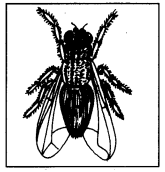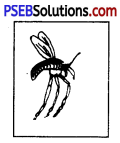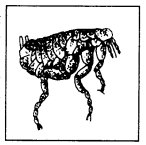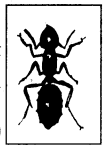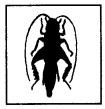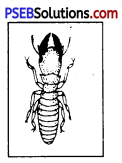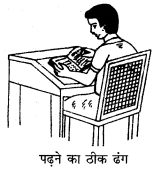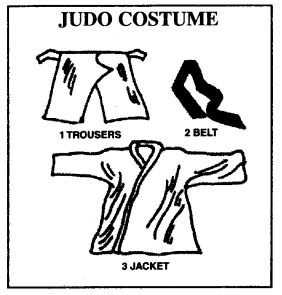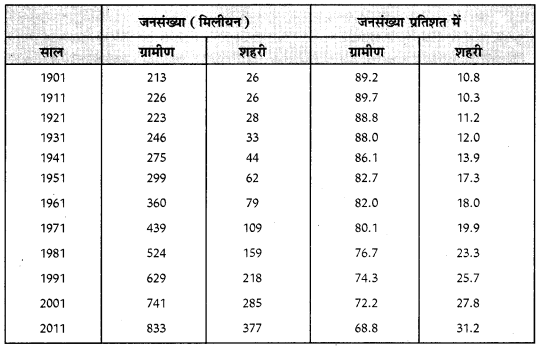Punjab State Board PSEB 11th Class History Book Solutions Chapter 21 राजनीतिक जागृति तथा अंग्रेजी साम्राज्य के विरुद्ध राजनीतिक आन्दोलन Textbook Exercise Questions and Answers.
PSEB Solutions for Class 11 History Chapter 21 राजनीतिक जागृति तथा अंग्रेजी साम्राज्य के विरुद्ध राजनीतिक आन्दोलन
अध्याय का विस्तृत अध्ययन
(विषय सामग्री की पूर्ण जानकारी के लिए)
प्रश्न 1.
1885 से 1916 ई० तक स्वतन्त्रता आन्दोलन की मुख्य घटनाओं की चर्चा करें।
उत्तर-
भारतीय राष्ट्रीय कांग्रेस की स्थापना 1885 ई० में हुई। इसके संस्थापक एक सेवा-मुक्त अंग्रेज अधिकारी श्री ए० ओ० ह्यूम थे। कांग्रेस का पहला अधिवेशन बम्बई (मुम्बई) में हुआ। जिसका सभापतित्व श्री वोमेश चन्द्र जी ने किया। अगले वर्ष यह सौभाग्य दादा भाई नौरोजी को प्राप्त हुआ। आरम्भ में अंग्रेजों ने इस संस्था का स्वागत किया। तत्कालीन वायसराय लॉर्ड डफरिन ने इसके सदस्यों को भोज भी दिया। उन्होंने यह विचार व्यक्त किए कि कांग्रेस की स्थापना से सरकार तथा जनता का आपसी मेल बढ़ेगा और सरकार को अपनी नीति निर्धारित करने में आसानी रहेगी। वास्तव में कांग्रेस का आरम्भिक उद्देश्य भी सरकार तथा जनता को निकट लाना था। अतः शुरू-शुरू में कांग्रेस प्रस्ताव पास करके सरकार के सामने प्रस्तुत करती थी। कांग्रेस हर वर्ष यह मांग करती कि भारत में संवैधानिक सुधार किए जाएं, भारतीयों को उच्च पदों पर नियुक्त किया जाए, कर कम किए जाएं तथा शिक्षा के लिए उचित पग उठाए जाएं। उसके प्रस्तावों की भाषा में विनम्रता होती थी और ये सदा एक प्रार्थना के रूप में सरकार के सम्मुख रखे जाते थे। अपने अधिवेशनों में भी कांग्रेसी नेता सरकार की निन्दा नहीं करते थे।
सरकार द्वारा कांग्रेस का विरोध-धीरे-धीरे ब्रिटिश सरकार और कांग्रेस एक-दूसरे से दूर होने लगे। आरम्भ में जिस संस्था को अंग्रेज़ लोग भारत में ब्रिटिश साम्राज्य के लिए रक्षा नली (Safety Valve) कहा करते थे, अब उसी संस्था को सन्देह की दृष्टि से देखा जाने लगा। अंग्रेजों को यह विश्वास होने लगा कि कांग्रेस के विकास से राष्ट्रीय भावना तेजी से फैल रही है। अत: लॉर्ड डफरिन ने एक भोज के अवसर पर कहा-“अब कांग्रेस राजद्रोह की ओर झुक रही है।” अंग्रेज़ी समाचारपत्रों ने खुलेआम कांग्रेस की निन्दा करनी शुरू कर दी। 1892 ई० में सरकार ने एक अधिनियम पास किया। इस अधिनियम से कांग्रेस सन्तुष्ट नहीं थी। अतः इसके रवैये में परिवर्तन आया और इसके नेताओं ने सरकार की गलत नीतियों की निन्दा करनी शुरू कर दी। परन्तु अभी भी उनके प्रस्तावों की भाषा में नम्रता बनी रही। 1897-98 ई० में भारत अकाल तथा प्लेग की लपेट में आ गया। हजारों लोग मरने लगे, परन्तु सरकार हाथ पर हाथ धरे बैठी रही। सरकार की इस उदासीनता ने जनता के दिल में रोष पैदा कर दिया। जनता को विश्वास हो गया कि उनके कष्टों का अन्त केवल स्वतन्त्रता प्राप्ति में ही है। लोकमान्य तिलक, लाला लाजपत राय जैसे नेताओं ने कांग्रेस की नर्म नीति की निन्दा की।
बंगाल का विभाजन-1905 ई० में लॉर्ड कर्जन ने बंगाल का विभाजन कर दिया। यह कदम हिन्दू तथा मुसलमान जनता में फूट डालने के लिए उठाया गया था। सारे भारत में रोष की लहर दौड़ गई। इससे लोकमान्य तिलक के विचारों को बहुत बल मिला। कांग्रेस में भी दो विचारधाराएं बन गईं। उस समय मुख्य नेता थे-गोपाल कृष्ण गोखले, दादा भाई नौरोजी, फिरोज़शाह मेहता, लाला लाजपतराय, लोकमान्य बाल गंगाधर तिलक तथा विपिन चन्द्र पाल। आखिरी तीन नेता लाल, बाल तथा पाल के नाम से प्रसिद्ध थे। ये तीनों नेता सरकार की ईंट का जवाब पत्थर से देना चाहते थे। उनके विचार थे कि अंग्रेज़ी सरकार प्यार की भाषा नहीं समझती। अतः केवल उग्रवादी कदम ही उसे झुकने के लिए विवश कर सकते हैं। इसके विपरीत गोखले आदि का विचार था कि अंग्रेजों के साथ संवैधानिक साधनों से ही निपटना चाहिए। कांग्रेस में यह आपसी भेद-भाव दिन-प्रतिदिन बढ़ता गया। ऐसा लगता था कि यह दो दल शीघ्र ही अलग-अलग हो जाएंगे।
सूरत की फूट-कांग्रेस ने अपने 1906 ई० के कलकत्ता (कोलकाता) अधिवेशन में ‘स्वराज्य’ की मांग की। दोनों दलों ने स्वराज्य शब्द की व्याख्या अपने-अपने ढंग से की। तिलक स्वराज्य का अर्थ पूर्ण स्वतन्त्रता से लेते थे। उनके अनुसार आज़ादी को प्राप्त करने के लिए केवल संवैधानिक ढंग काम नहीं दे सकता। तिलक का मूलमन्त्र था-‘Militancy, not Mendicancy’ । इसके विपरीत गोखले के अनुसार स्वराज्य का अभिप्रायः ‘उत्तरदायी सरकार’ से था और वे इसे शान्तिपूर्ण तथा संवैधानिक साधनों से प्राप्त करना चाहते थे। आखिर 1907 में सूरत के कांग्रेस अधिवेशन में दोनों दलों में खूब झगड़ा हुआ। तिलक अपने विचारों पर दृढ़ रहे। इस तरह कांग्रेस में दो दल बन गए। तिलक तथा उनके साथियों को गर्म दल का नाम दिया और गोखले के अनुयायियों को नर्म दल कहा जाने लगा।
क्रान्तिकारी आन्दोलन-गर्म दल के समर्थकों में से ही बाद में कुछ क्रान्तिकारी बन गए। उन्होंने देश में आतंक का वातावरण उत्पन्न कर दिया। पूना के कलैक्टर तथा प्लेग कमिश्नर मि० रैण्ड का चापेकर बन्धुओं ने वध कर दिया। इसके अतिरिक्त बंगाल के लेफ्टिनेंट गवर्नर मि० कैनेडी पर खुदी राम बोस और उसके एक साथी ने बम फेंका किन्तु उसकी जगह उनकी पत्नी मारी गई। सरकार ने क्रान्तिकारियों को दबाने के लिए सख्ती से काम लिया। कई क्रान्तिकारी फांसी के तख्ते पर चढ़ा दिए गए। खुदीराम बोस को भी फांसी दी गई। कुछ लोगों को काले पानी का दण्ड मिला। तिलक को 15 मास के लिए जेल में डाल दिया गया। लाला लाजपत राय तथा सरदार अजीत सिंह को देश से निर्वासित कर दिया गया। सरकार ने क्रान्तिकारियों का प्रभुत्व समाप्त करने के लिए नर्म दल वालों का समर्थन भी प्राप्त किया।
मुस्लिम लीग की स्थापना-मुस्लिम लीग की स्थापना ने स्वतन्त्रता आन्दोलन को तीव्र किया। इस संस्था की स्थापना 1906 में हुई। मुस्लिम नेता कांग्रेस को हिन्दुओं की संस्था समझते थे। उनका विश्वास था कि मुसलमानों के हितों की रक्षा कांग्रेस नहीं बल्कि मुस्लिम लीग ही कर सकती है। अंग्रेज़ी सरकार ने भी मुस्लिम लीग को खूब प्रोत्साहन दिया क्योंकि वे इस संस्था की सहायता करके हिन्दुओं तथा मुसलमानों में फूट डाल सकते थे। मुस्लिम लीग के नेता कई बार वायसराय से मिले और उन्होंने मुसलमानों के हितों की रक्षा की मांग की। अंग्रेज़ी सरकार तो पहले ही उन्हें खुश करना चाहती थी। अतः 1909 ई० के सुधार कानून में उन्होंने मुसलमानों के लिए ‘पृथक् प्रतिनिधित्व’ की मांग को स्वीकार कर लिया।
मिण्टो-मार्ले सुधार-मिण्टो-मार्ले सुधार अथवा 1909 ई० के अधिनियम के अनुसार कार्यकारिणी तथा विधानमण्डलों के सदस्यों की संख्या बढ़ा दी गई। इसके अतिरिक्त मुसलमानों को पृथक् प्रतिनिधित्व दिया गया। पृथक् प्रतिनिधित्व के सिद्धान्त ने दो राष्ट्रों के सिद्धान्त को जन्म दिया जिसके कारण आगे चलकर पाकिस्तान का निर्माण हुआ। 1909 के एक्ट के अनुसार अप्रत्यक्ष रूप से चुनाव होने लगे। परन्तु इन सब सुधारों से भारतीय सन्तुष्ट न हुए। वे समझ गए कि अंग्रेज़ लोग हिन्दुओं तथा मुसलमानों में फूट डालना चाहते हैं। कांग्रेस के गर्म दल तथा नर्म दल दोनों ने सरकार का विरोध किया। सरकार ने नर्म दल वालों को प्रसन्न करने के लिए 1911 ई० में बंगाल विभाजन रद्द कर दिया।
लखनऊ पैक्ट-लोकमान्य तिलक माण्डले जेल से छूट कर आ चुके थे। 1915 ई० में उन्होंने स्वराज्य की मांग को पुनः सरकार के सामने रखा। उन्होंने कहा, “स्वराज्य हमारा जन्म-सिद्ध अधिकार है और हम इसे लेकर ही रहेंगे।” इधर नर्म दल के प्रमुख नेता मर चुके थे। अतः दोनों दलों के पुनः एक हो जाने की सम्भावनाएं बढ़ गईं। आखिर 1915 ई० में दोनों दल मिल गए। उसी समय यूरोप में युद्ध चल रहा था। टर्की पर आक्रमण करने के कारण मुसलमान भी अंग्रेजों के विरुद्ध हो गए थे। अतः 1916 ई० के लखनऊ पैक्ट के अनुसार कांग्रेस तथा मुस्लिम लीग ने मिलकर सरकार का विरोध करने का निर्णय किया।
होमरूल आन्दोलन-लखनऊ पैक्ट के बाद कांग्रेस के दोनों दलों तथा मुस्लिम लीग ने मिलकर भारत के लिए ‘होमरूल’ की मांग की। लोकमान्य तिलक तथा श्रीमती ऐनी बेसेन्ट ने ‘होमरूल लीग’ की स्थापना की। सारे देश में लोगों ने सरकार के विरुद्ध सभाएं कीं और होमरूल को प्राप्त करने के लिए प्रतिज्ञा की। श्रीमती ऐनी बेसेन्ट को मद्रास सरकार ने बन्दी बना लिया जिससे सारे देश में हाहाकार मच गया। सरकार को उन्हें छोड़ना पड़ा। इसी बीच प्रथम महायुद्ध में सरकार को भारतीयों के सहयोग की आवश्यकता पड़ी। अतः भारत सचिव माण्टेग्यू ने घोषणा की कि सरकार भारत में उत्तरदायी शासन स्थापित करने के लिए उचित पग उठाएगी। फलस्वरूप होमरूल आन्दोलन समाप्त हो गया। इस प्रकार 1885 में डाले गए बीज (कांग्रेस) ने 1919 तक एक महान् वृक्ष का रूप धारण कर लिया। कांग्रेस को शक्तिशाली रूप देने का श्रेय श्री गोपालकृष्ण गोखले, लोकमान्य तिलक, लाला लाजपत राय आदि अनेक नेताओं को प्राप्त है।

प्रश्न 2.
महात्मा गांधी के योगदान के संदर्भ में 1919 से 1922 तक के स्वतन्त्रता आन्दोलन की मुख्य घटनाओं की चर्चा करें।
उत्तर-
भारतीय स्वतन्त्रता संग्राम की वास्तविक कहानी 1919 ई० से आरम्भ होती है। यही वह वर्ष था जब भारत की राजनीति में महात्मा गांधी ने प्रवेश किया। वे 1915 में दक्षिणी अफ्रीका से भारत वापस आए। तीन वर्ष तक उन्होंने इस देश के राजनीतिक वातावरण का अध्ययन किया। उन्होंने प्रथम महायुद्ध में अंग्रेज़ी सरकार को नैतिक समर्थन भी प्रदान किया। परन्तु 1919 में सारी स्थिति बदल गई। इस संकट के समय में महात्मा गांधी स्वतन्त्रता सेनानी बनकर हमारे सामने आए और उन्होंने सत्य और अहिंसा के बल पर अंग्रेज़ी साम्राज्य की जड़ें खोखली कर दीं। 1919 से 1922 तक महात्मा गांधी जी खूब सक्रिय रहे। इस समय की प्रमुख घटनाएं इस प्रकार हैं :-
रौलेट एक्ट तथा जलियांवाला बाग की दुर्घटना-प्रथम महायुद्ध के समाप्त होने पर भारतीयों को प्रसन्न करने के लिए माण्टेग्यू चेम्सफोर्ड रिपोर्ट प्रकाशित की गई। भारतीयों ने युद्ध में अंग्रेजों की सहायता की थी। उन्हें विश्वास था कि युद्ध में विजयी होने के पश्चात् सरकार उन्हें पर्याप्त अधिकार देगी। परन्तु इस रिपोर्ट से भारतीय निराश हो गए। सरकार भी भयभीत हो गई कि अवश्य कोई नया आन्दोलन आरम्भ होने वाला है। अतः स्थिति पर नियन्त्रण पाने के लिए सरकार ने रौलेट एक्ट पास कर दिया। इस एक्ट के अनुसार वह किसी भी व्यक्ति को बिना वकील, बिना दलील, बिना अपील बन्दी बना सकती थी। इस काले कानून का विरोध करने के लिए महात्मा गांधी आगे बढ़े। उन्होंने जनता को शान्तिमय ढंग से इसका विरोध करने के लिए कहा। इस शान्तिमय विरोध को उन्होंने सत्याग्रह का नाम दिया। स्थान-स्थान पर सभाएं बुलाई गईं और जलूस निकाले गए। कांग्रेस का आन्दोलन जनता. का आन्दोलन बन गया। पहली बार भारत की जनता ने संगठित होकर अंग्रेज़ों का विरोध किया। 6 अगस्त, 1919 ई० को सारे भारत में हड़ताल की गई। महात्मा गांधी ने लोगों को शान्तिमय विरोध करने के लिए कहा था। फिर भी कहीं-कहीं अप्रिय घटनाएं हुईं।
13 अप्रैल, 1919 ई० को जलियांवाला बाग की दुःखद घटना से भारतीय राजनीति में एक नया मोड़ आया। पंजाब के लोकप्रिय नेता डॉ० सत्यपाल तथा डॉ० किचलू को सरकार ने बन्दी बना लिया था। अमृतसर की जनता विरोध प्रकट करने के लिए बैसाखी के दिन जलियांवाला बाग में एकत्रित हुई। नगर में मार्शल-ला लगा हुआ था। जनरल डायर ने लोगों को चेतावनी दिए बिना ही एकत्रित लोगों पर गोली चलाने का आदेश दिया। हज़ारों निर्दोष स्त्री-पुरुष मारे गए। इससे सारे भारत में रोष की लहर दौड़ गई।
असहयोग आन्दोलन-इन्हीं दिनों मुसलमानों ने अंग्रेजी सरकार के विरुद्ध खिलाफ़त आन्दोलन छेड़ा हुआ था। जनता पहले से ही भड़की हुई थी। गांधी जी ने इस अवसर का लाभ उठाया और असहयोग आन्दोलन आरम्भ कर दिया। इस प्रकार हिन्दुओं तथा मुसलमानों ने मिल कर अंग्रेजी सरकार का विरोध किया। छात्रों ने सरकारी स्कूलों तथा कॉलेजों का बहिष्कार कर दिया। वकीलों ने अदालतों में जाना बन्द कर दिया। कई लोगों ने अंग्रेजी सरकार द्वारा प्रदान की गई उपाधियों को त्याग दिया। लोगों ने अंग्रेज़ी कपड़े का बहिष्कार किया तथा हाथ का बुना कपड़ा पहनना आरम्भ कर दिया। गांधी जी इस आन्दोलन को शान्तिमय ढंग से चलाना चाहते थे, परन्तु 1922 में उत्तर प्रदेश के एक गांव चौरी-चौरा में एक पुलिस चौकी को सिपाहियों सहित जला दिया गया। गांधी जी को इस घटना से बड़ा दुःख हुआ और उन्होंने असहयोग आन्दोलन की समाप्ति की घोषणा कर दी। उनके इस कार्य से अनेक नेता गांधी जी से रुष्ट हो गए तथा उन्होंने ‘स्वराज्य पार्टी’ नामक एक नये दल की स्थापना की। अंग्रेज़ सरकार ने गांधी जी को बन्दी बना लिया और छः वर्ष के कारावास का दण्ड दिया।
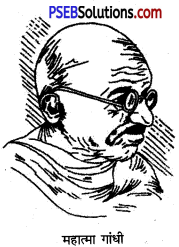
महात्मा गांधी महात्मा गांधी जी ने कुछ देर शांत रहने के बाद 1927 में एक बार फिर भारतीय राजनीति को गरिमा प्रदान की।
महत्त्वपूर्ण परीक्षा-शैली प्रश्न
1. वस्तुनिष्ठ प्रश्न
1. उत्तर एक शब्द से एक वाक्य तक
प्रश्न 1.
1857 की क्रांति में किस महिला शासक ने महत्त्वपूर्ण भाग लिया?
उत्तर-
रानी लक्ष्मी बाई ने।

प्रश्न 2.
कांग्रेस की स्थापना किसने की?
उत्तर-
कांग्रेस की स्थापना मिस्टर ए० ओ० ह्यूम ने की।
प्रश्न 3.
गरम दल के प्रतिष्ठाता कौन थे?
उत्तर-
बाल गंगाधर तिलक।
प्रश्न 4.
गांधी जी ने असहयोग आन्दोलन स्थगित करने का निश्चय क्यों किया?
उत्तर-
चौरी-चौरा की हिंसात्मक घटना के कारण।

प्रश्न 5.
आज़ाद हिन्द फौज की स्थापना किसने की ?
उत्तर-
आज़ाद हिन्द फौज की स्थापना सुभाषचन्द्र बोस ने की।
प्रश्न 6.
1947 ई० क्यों प्रसिद्ध है ?
उत्तर-
इस वर्ष (15 अगस्त, 1947 को) भारत को स्वतन्त्रता मिली थी।
2. रिक्त स्थानों की पूर्ति
(i) जलियांवाला बाग में अंग्रेज़ कमाण्डर ……………. ने गोली चलाई थी।
(ii) साईमन कमीशन …………………. में भारत आया।
(iii) सिविल अवज्ञा आन्दोलन …………… ई० में चला।
(iv) पूर्ण स्वराज्य की घोषणा 1929 ई० में कांग्रेस के ………. अधिवेशन में हुई।
(v) गांधी-इर्विन समझौता ………………. ई० में हुआ।
उत्तर-
(i) जनरल डायर
(ii) 1928
(iii) 1929
(iv) लाहौर
(v) 1931.

3. सही/ग़लत कथन
(i) सन् 1905 ई० में बंगाल का विभाजन हिन्दुओं और मुसलमानों के बीच फूट डालने के लिए किया गया। — (√)
(ii) स्वदेशी आन्दोलन की शुरुआत गांधी जी ने सन् 1905 ई० में की। — (×)
(iii) सन् 1909 ई० के एक्ट से भारतीयों की आशाएं पूरी नहीं हुई। — (√)
(iv) मुस्लिम लीग की स्थापना सन् 1906 ई० में हुई। — (√)
(v) होम रूल लीगों की स्थापना प्रथम महायुद्ध के दौरान हुई। — (√)
(vi) पहली बार सन् 1910 ई० में कांग्रेस ने स्वराज्य को अपना लक्ष्य बनाया। — (×)
4. बहु-विकल्पीय प्रश्न
प्रश्न (i)
कांग्रेस और मुस्लिम लीग के मध्य लखनऊ समझौता कब हुआ?
(A) 1916 ई० में
(B) 1906 ई० में
(C) 1917 ई० में
(D) 1915 ई० में।
उत्तर-
(A) 1916 ई० में
प्रश्न (ii)
गांधी जी ने असहयोग आन्दोलन कब चलाया ?
(A) 1921 ई० में
(B) 1927 ई० में
(C) 1920 ई० में
(D) 1922 ई० में।
उत्तर-
(C) 1920 ई० में

प्रश्न (iii)
अंग्रेजों ने दिल्ली को भारत की राजधानी कब बनाया?
(A) 1911 ई० में
(B) 1907 ई० में
(C) 1890 ई० में
(D) 1892 ई० में।
उत्तर-
(A) 1911 ई० में
प्रश्न (iv)
कानपुर में 1857 ई० के विद्रोह का नेतृत्व किया-
(A) कुंवर सिंह
(B) नाना साहिब
(C) बेग़म हज़रत महल
(D) बहादुर शाह।
उत्तर-
(B) नाना साहिब
प्रश्न (v)
बाल गंगाधर तिलक ने कौन-सा पत्र निकाला?
(A) पंजाब केसरी
(B) केसरी
(C) हिन्दू
(D) नवभारत।
उत्तर-
(B) केसरी

II. अति छोटे उत्तर वाले प्रश्न
प्रश्न 1.
भारत के स्वतन्त्रता संघर्ष के इतिहास के स्रोतों के चार प्रकारों के नाम बताएं।
उत्तर-
भारत के स्वतन्त्रता संघर्ष के इतिहास की जानकारी के चार प्रकार के स्रोत हैं : अंग्रेज़ अधिकारियों की रिपोर्ट, लैजिस्लेटिव असैम्बली बहस के रिकार्ड, ब्रिटिश संसद् के रिकार्ड तथा भारतीय समाचार-पत्र।
प्रश्न 2.
बाल गंगाधर तिलक तथा महात्मा गांधी ने कौन-से अखबार निकाले ?
उत्तर-
बाल गंगाधर तिलक ने केसरी तथा मराठा अखबार निकाले। महात्मा गांधी ने ‘हरिजन’ नामक अखबार निकाली।
प्रश्न 3.
सरदार दयाल सिंह मजीठिया तथा लाला लाजपत राय ने कौन-से अखबार निकाले ?
उत्तर-
सरदार दयाल सिंह मजीठिया ने ‘ट्रिब्यून’ तथा लाला लाजपत राय ने ‘पंजाबी’ नामक अखबार निकाले।

प्रश्न 4.
भारतीयों के आरम्भिक राजनीतिक संगठनों में सबसे महत्त्वपूर्ण कौन-सा संगठन था तथा इसको किसने, कब और कहां स्थापित किया ?
उत्तर-
भारतीयों के आरम्भिक राजनीतिक संगठनों में सबसे महत्त्वपूर्ण संगठन ‘इण्डियन एसोसिएशन’ था। इसे 1876 में सुरेन्द्र नाथ बनर्जी ने कलकत्ता (कोलकाता) में स्थापित किया।
प्रश्न 5.
इण्डियन एसोसिएशन की दो मांगें कौन-सी थीं ?
उत्तर-
इण्डियन एसोसिएशन की दो मांगें थीं : इण्डियन सिविल सर्विस के नियमों को बदलना और प्रेस को स्वतन्त्रता देना।
प्रश्न 6.
इण्डियन नेशनल कांग्रेस की स्थापना कब हुई तथा इसमें किस अंग्रेज अफसर का काफी हाथ था ?
उत्तर-
इण्डियन नेशनल कांग्रेस की स्थापना 1885 में हुई। कांग्रेस की स्थापना में अंग्रेज़ अफसर ह्यूम का काफी हाथ था।

प्रश्न 7.
कांग्रेस का पहला अधिवेशन कहां और किसके सभापतित्व में हुआ तथा इसमें कितने प्रतिनिधियों ने भाग लिया ?
उत्तर-
कांग्रेस का पहला अधिवेशन बम्बई (मुम्बई) में वोमेशचन्द्र बैनर्जी के सभापतित्व में हुआ। इसमें 72 प्रतिनिधियों ने भाग लिया।
प्रश्न 8.
कांग्रेस का दूसरा अधिवेशन किसके सभापतित्व में तथा कहां हुआ तथा इसमें कितने प्रतिनिधियों ने भाग लिया?
उत्तर-
कांग्रेस का दूसरा अधिवेशन दादा भाई नौरोजी के सभापतित्व में कलकत्ता (कोलकाता) में हुआ। इसमें 400 से भी अधिक प्रतिनिधियों ने भाग लिया।
प्रश्न 9.
आरम्भ में कांग्रेस के सदस्य अधिकतर कौन-से चार व्यवसायों से सम्बन्धित थे ?
उत्तर-
आरम्भ में कांग्रेसी सदस्य मुख्यतया कारखानेदार, व्यापारी, मध्यवर्गीय शिक्षित, डॉक्टर और वकील थे।

प्रश्न 10.
1905 तक कांग्रेस के तीन पुराने नेताओं के नाम बताएं।
उत्तर-
1905 तक कांग्रेस के तीन पुराने नेता सुरेन्द्रनाथ बैनर्जी, गोपाल कृष्ण गोखले और फिरोज़शाह मेहता थे।
प्रश्न 11.
1905 तक कांग्रेस के तीन नये नेताओं के नाम बताएं।
उत्तर-
1905 तक कांग्रेस के तीन नये नेता बाल गंगाधर तिलक, विपिनचन्द्र पाल और लाला लाजपत राय थे।
प्रश्न 12.
रूस को किस एशियाई देश ने तथा कब हराया था ?
उत्तर-
रूस को एशिया के देश जापान ने 1905 ई० में हराया था।

प्रश्न 13.
बंगाल का विभाजन कब तथा किस वायसराय के समय हुआ तथा इस समय बंगाल प्रान्त में कौन-से तीन प्रदेश शामिल थे ?
उत्तर-
बंगाल का विभाजन 1905 में वायसराय लॉर्ड कर्जन के समय हुआ। इस समय बंगाल प्रान्त में बंगाल, बिहार तथा उड़ीसा के प्रदेश शामिल थे।
प्रश्न 14.
बंगाल के विभाजन के सिलसिले में कौन-सा आन्दोलन चलाया गया तथा इसमें किन वस्तुओं के बहिष्कार पर बल दिया गया ?
उत्तर-
बंगाल के विभाजन के सिलसिले में स्वदेशी आन्दोलन चलाया गया। इसमें इंग्लैण्ड में निर्मित कपड़े और चीनी के बहिष्कार पर बल दिया गया।
प्रश्न 15.
1906 में कांग्रेस अधिवेशन कहां हुआ तथा इसमें पास होने वाला सबसे महत्त्वपूर्ण प्रस्ताव कौन-सा था ?
उत्तर-
1906 में कांग्रेस का अधिवेशन कलकत्ता (कोलकाता) में हुआ। इसमें ‘स्वदेशी और बायकॉट’ का अति महत्त्वपूर्ण प्रस्ताव पास हुआ।

प्रश्न 16.
1907 में कांग्रेस का अधिवेशन कहां हुआ तथा इसमें कांग्रेस किन दो दलों में बंट गई ?
उत्तर-
1907 में कांग्रेस का अधिवेशन सूरत में हुआ। इसमें कांग्रेस नर्म दल और गर्म दल नामक दो दलों में बंट गई।
प्रश्न 17.
बंगाल तथा महाराष्ट्र में कौन-कौन-से तीन आतंकवादी संगठन स्थापित किए गए ?
उत्तर-
बंगाल में अनुशीलन समितियां तथा युगान्तर ग्रुप और महाराष्ट्र में अभिनव भारत नामक आतंकवादी संगठन स्थापित किए गए।
प्रश्न 18.
आतंकवादी संगठनों पर किन तीन व्यक्तियों की विचारधारा का प्रभाव था ?
उत्तर-
आतंकवादी संगठनों पर बंकिम चन्द्र चैटर्जी, अरविंद घोष और वी० डी० सावरकर की विचारधारा का प्रभाव था।

प्रश्न 19.
बीसवीं सदी के पहले दशक के तीन क्रान्तिकारी आतंकवादियों के नाम बताएं।
उत्तर-
बीसवीं सदी के पहले दशक के तीन क्रान्तिकारी आतंकवादी थे : खुदी राम बोस, प्रफुल्ल चाकी और मदन लाल ढींगरा।
प्रश्न 20.
मदन लाल ढींगरा कहां का रहने वाला था तथा इसने कब और कहां किस अंग्रेज़ अफसर को गोली मारी थी ?
उत्तर-
मदन लाल ढींगरा अमृतसर जिले का रहने वाला था। उसने 1909 में लंदन में कर्जन वायली नामक अंग्रेज़ अफसर को गोली मारी थी।
प्रश्न 21.
1907 में पंजाब में 1857 की पचासवीं वर्षगांठ पर विद्रोह करने का प्रचार किसने किया तथा इनको क्या सज़ा मिली थी ?
उत्तर-
1907 में पंजाब में 1857 की पचासवीं वर्षगांठ पर अजीत सिंह ने सरकार के खिलाफ विद्रोह का प्रचार किया। इन्हें देश निकाला की सज़ा मिली थी।

प्रश्न 22.
मुस्लिम लीग की स्थापना कब हुई तथा उसका उद्देश्य क्या था ?
उत्तर-
मुस्लिम लीग की स्थापना 1906 में हुई। इसका उद्देश्य सरकार के साथ सहयोग करके मुसलमानों के लाभ के लिए काम करना था।
प्रश्न 23.
पृथक् प्रतिनिधित्व की मांग किस राजनीतिक दल ने किस गवर्नर-जनरल के समय में की तथा 1947 तक इसका सबसे महत्त्वपूर्ण नेता कौन था ?
उत्तर-
पृथक् प्रतिनिधित्व की मांग मुस्लिम लीग ने गवर्नर-जनरल मिण्टो के समय में की। 1947 तक इस दल का सबसे महत्त्वपूर्ण नेता मुहम्मद अली जिन्नाह था।
प्रश्न 24.
कौन-से दो मुस्लिम संगठन अंग्रेज़ सरकार के विरुद्ध रहे ?
उत्तर-
अहरार तथा देवबंदी उलेमा के संगठन सरकार के विरुद्ध रहे।

प्रश्न 25.
चार मुस्लिम नेताओं के नाम बताएं।
उत्तर-
चार मुस्लिम नेताओं के नाम हैं-मौलाना अबुल कलाम आज़ाद, हकीम अजमल खां, डॉ० अंसारी और शौकत अली।
प्रश्न 26.
पंजाब के दो राष्ट्रवादी मुस्लिम कांग्रेसी नेताओं के नाम बताएं।
उत्तर-
पंजाब के दो राष्ट्रवादी मुस्लिम कांग्रेसी नेता डॉ० सैफुद्दीन किचलू तथा डॉ० मुहम्मद आलम थे।
प्रश्न 27.
1909 के एक्ट को किस नाम से जाना जाता है तथा इसमें मुसलमानों की कौन-सी मांग शामिल कर ली गई थी ?
उत्तर-
1909 के एक्ट को मिन्टो मार्ले सुधार के नाम से जाना जाता है। इसमें मुसलमानों की पृथक् प्रतिनिधित्व की मांग शामिल कर ली गई थी।

प्रश्न 28.
1909 के एक्ट में लैजिस्लेटिव कौंसिल में कितने सदस्य बना दिए गए तथा इसमें कितने निर्वाचित सदस्य थे ?
उत्तर-
1909 के एक्ट में लैजिस्लेटिव कौंसिल में 60 सदस्य बना दिए गए। इनमें से 27 निर्वाचित सदस्य थे।
प्रश्न 29.
हिन्दुस्तान गदर पार्टी की स्थापना कब हुई तथा इसके अखबार और संस्थापक का नाम क्या था ?
उत्तर-
‘हिन्दुस्तान गदर पार्टी’ की स्थापना 1913 में हुई। इसके अखबार का नाम ‘गदर’ और संस्थापक का नाम लाला हरदयाल था।
प्रश्न 30.
गदर पार्टी की शाखाएं भारत से बाहर कौन-से चार देशों अथवा क्षेत्रों में थीं ?
उत्तर-
गदर पार्टी की शाखाएं भारत से बाहर कनाडा, अमेरिका, यूरोप तथा दक्षिणी-पूर्वी एशिया के देशों में थीं।

प्रश्न 31.
गदर पार्टी के चार कार्यकर्ताओं तथा नेताओं के नाम बताओ।
उत्तर-
गदर पार्टी के चार कार्यकर्ता तथा नेता सोहन सिंह भकना, मुहम्मद बरकत उल्ला, करतार सिंह सराभा तथा भाई परमानन्द थे।
प्रश्न 32.
होमरूल आन्दोलन किस लिए चलाया गया तथा इसके दो नेताओं के नाम बताएं।
उत्तर-
होमरूल आन्दोलन स्वराज्य की मांग के लिए चलाया गया। इसके दो मुख्य नेता श्रीमती एनी बेसेन्ट तथा बाल गंगाधर तिलक थे।
प्रश्न 33.
कांग्रेस में नर्म दल तथा गर्म दल किसके यत्नों से तथा कब फिर से इकट्ठे हो गए ?
उत्तर-
नर्म दल तथा गर्म दल श्रीमती एनी बेसेन्ट के यत्नों से 1915 में फिर से इकट्ठे हो गए।

प्रश्न 34.
‘लखनऊ पैक्ट’ कब और किन दो राजनीतिक दलों के बीच में हुआ ?
उत्तर-
लखनऊ पैक्ट’ 1916 में कांग्रेस और मुस्लिम लीग के बीच में हुआ।
प्रश्न 35.
कांग्रेस ने धर्म के आधार पर पृथक् प्रतिनिधित्व का सिद्धान्त कब और किस समझौते के द्वारा स्वीकार कर लिया ?
उत्तर-
कांग्रेस ने धर्म के आधार पर पृथक् प्रतिनिधित्व का सिद्धान्त 1916 में लखनऊ समझौते के अनुसार स्वीकार किया।
प्रश्न 36.
रौलेट एक्ट कब कानून बना तथा इसको इस नाम से क्यों जाना जाता है ?
उत्तर-
रौलेट एक्ट 1919 में कानून बना। यह एक्ट जस्टिस रौलेट के सुझाव पर बना होने के कारण रौलेट एक्ट के नाम से जाना जाता है।

प्रश्न 37.
मोती लाल नेहरू ने रौलेट एक्ट की व्याख्या किन शब्दों में की ?
उत्तर-
मोती लाल नेहरू ने रौलेट एक्ट की व्याख्या इन शब्दों में की-‘न वकीर दलील, न अपील’।
प्रश्न 38.
महात्मा गांधी किस देश से तथा कब भारत लौटे तथा विदेश में उन्होंने किस नीति के विरुद्ध सत्याग्रह किया था ?
उत्तर-
महात्मा गांधी 1915 में अफ्रीका से लौटे। विदेश (अफ्रीका) में उन्होंने रंगभेद की नीति के विरुद्ध सत्याग्रह किया था।
प्रश्न 39.
महात्मा गांधी ने भारत वापस आ कर किस इलाके के कौन-से किसानों की सहायता की ?
उत्तर-
महात्मा गांधी ने भारत वापस आ कर, बिहार में चम्पारन के इलाके में नील की खेती करने वाले किसानों की सहायता की।

प्रश्न 40.
जलियांवाला बाग कांड कब और कहां हुआ तथा इसके लिए उत्तरदायी अंग्रेज़ अफसर का नाम बताएं।
उत्तर-
जलियांवाला बाग का कांड 13 अप्रैल, 1919 को अमृतसर में हुआ। इसके लिए जनरल डायर उत्तरदायी था।
प्रश्न 41.
जलियांवाला बाग में कितने लोग मारे गए तथा कितने घायल हुए ?
उत्तर-
जलियांवाला बाग में 500 से अधिक लोग मारे गए और 1500 से अधिक लोग घायल हुए।
प्रश्न 42.
‘मांटेग्यू चैम्सफोर्ड सुधार’ का विधान कब पास हुआ तथा कब लागू किया गया ?
उत्तर-
मांटेग्यू चैम्सफोर्ड सुधार 1918-19 में पास हुआ तथा मार्च, 1920 में लागू किया गया।

प्रश्न 43.
1919 के विधान में केन्द्र के पास कौन-से विभाग थे ?
उत्तर-
1919 के विधान में केन्द्र के पास सेना, विदेशी मामले, संचार के साधन, व्यापार तथा चुंगी के विभाग थे।
प्रश्न 44.
1919 के विधान के अनुसार प्रान्तीय प्रशासन को किन दो भागों में बांटा गया ?
उत्तर-
इस विधान के अनुसार प्रान्तीय प्रशासन को इन दो भागों में बांटा गया :
- गवर्नर एवं उसकी परिषद् और
- निर्वाचित मंत्री।
प्रश्न 45.
1919 के विधान में प्रान्तीय गवर्नर के पास कौन-से विभाग थे ?
उत्तर-
1919 के विधान में प्रान्तीय गवर्नर के पास लगान, कानून, न्याय, पुलिस, सिंचाई और मजदूरों के मामलों से सम्बन्धित विभाग थे।

प्रश्न 46.
1919 के विधान में निर्वाचित मन्त्रियों के पास कौन-से विभाग थे ?
उत्तर-
1919 के विधान के अनुसार निर्वाचित मन्त्रियों के पास नगरपालिकाएं, ज़िला बोर्ड, शिक्षा, पब्लिक हैल्थ, पब्लिक वर्क्स, कृषि तथा सहकारी संस्थाओं के विभाग थे।
प्रश्न 47.
‘डायारकी’ से क्या अभिप्राय है ?
उत्तर-
‘डायारकी’ से अभिप्राय उस दोहरे शासन से है जो मांटेग्यू चैम्सफोर्ड विधान के अन्तर्गत प्रान्तों में स्थापित किया गया। इसके अनुसार शासन के दो भाग कर दिए गए जिनमें से एक भाग पर गवर्नर और उसकी परिषद् का अधिकार रहा, जबकि दूसरा भाग निर्वाचित मन्त्रियों को सौंप दिया गया।
प्रश्न 48.
1919 मे किन चार प्रदेशों को ‘प्रान्तों’ का दर्जा दे दिया गया ?
उत्तर-
1919 में यू० पी०, पंजाब, बिहार और उड़ीसा को प्रान्त का दर्जा दिया गया।

प्रश्न 49.
1919 के विधान अनुसार आम मतदाताओं के प्रतिनिधि किस आधार पर चुने जाते थे ?
उत्तर-
इस विधान के अनुसार आम मतदाताओं के प्रतिनिधि साम्प्रदायिक विभाजन के आधार पर चुने जाते थे।
प्रश्न 50.
भारतीय नेताओं की 1919 के विधान पर कौन-सी दो मुख्य आपत्तियाँ थीं ?
उत्तर-
भारतीय नेताओं की दो मुख्य आपत्तियां थीं-धर्म के आधार पर पृथक् प्रतिनिधित्व दिया जाना और इसका ‘स्वराज्य’ के अधिकार से दूर होना।
प्रश्न 51.
खिलाफत आन्दोलन से क्या अभिप्राय है ?
उत्तर-
खिलाफत आन्दोलन से अभिप्राय उस आन्दोलन से है जो भारतीय मुसलमानों ने अपने खलीफा अर्थात् तुर्की के सुल्तान के पक्ष में अंग्रेज़ी सरकार के विरुद्ध चलाया।

प्रश्न 52.
खिलाफत आन्दोलन के चार नेताओं के नाम बताएं।
उत्तर-
खिलाफत आन्दोलन के चार नेता मुहम्मद अली, शौकत अली, मौलाना अबुल कलाम आज़ाद तथा हकीम अजमल खां थे।
प्रश्न 53.
खिलाफत कमेटी ने असहयोग आन्दोलन शुरू करने की घोषणा कब की तथा इसमें सबसे पहले कौन शामिल हुए ?
उत्तर-
खिलाफत कमेटी ने असहयोग आन्दोलन शुरू करने की घोषणा 31 अगस्त, 1920 को की। महात्मा गांधी इसमें सबसे पहले शामिल हुए।
प्रश्न 54.
असहयोग आन्दोलन के कार्यक्रम में किन चीज़ों का बहिष्कार शामिल था ?
उत्तर-
असहयोग आन्दोलन के कार्यक्रम में छुआछूत तथा शराब का बहिष्कार शामिल था।

प्रश्न 55.
असहयोग आन्दोलन के रचनात्मक पक्ष कौन-से थे ?
उत्तर-
असहयोग आन्दोलन के रचनात्मक पक्ष थे-पंचायतों, राष्ट्रीय स्कूलों तथा कॉलेजों की स्थापना करना और स्वदेशी वस्तुओं (विशेषकर खादी) का प्रचार करना।
प्रश्न 56.
असहयोग आन्दोलन किस पर आधारित था तथा इसके कौन-से दो प्रतीक बन गए ?
उत्तर-
यह आन्दोलन पूर्ण रूप से अहिंसा पर आधारित था। चर्खा तथा खद्दर इस आन्दोलन के प्रतीक बन गए।
प्रश्न 57.
असहयोग आन्दोलन के अन्तर्गत वकालत छोड़ने वाले तीन व्यक्तियों के नाम बताएं।
उत्तर-
असहयोग आन्दोलन के अन्तर्गत वकालत छोड़ने वालों में पंडित मोती लाल नेहरू, डॉ० राजेन्द्र प्रसाद तथा लाला लाजपत राय शामिल थे।

प्रश्न 58.
असहयोग आन्दोलन द्वारा पहली बार समाज के कौन-से दो हिस्से राजनीतिक गतिविधियों में शामिल हुए ?
उत्तर-
असहयोग आन्दोलन द्वारा पहली बार समाज के साधारण लोग तथा स्त्रियां राजनीतिक गतिविधियों में शामिल हुईं।
प्रश्न 59.
असहयोग आन्दोलन कब वापिस लिया गया तथा इसका क्या कारण था ?
उत्तर-
असहयोग आन्दोलन 1922 में वापस लिया गया। इसका कारण था-उत्तर प्रदेश में चौरी-चौरा के स्थान पर हुई हिंसात्मक घटना।
प्रश्न 60.
भारत से बाहर कब व किस घटना के बाद खिलाफत प्रश्न समाप्त हो गया ?
उत्तर-
भारत से बाहर 1929 में खिलाफत प्रश्न समाप्त हुआ। यह प्रश्न तुर्की के सुल्तान के बहाल होने के बाद समाप्त हुआ।

III. छोटे उत्तर वाले प्रश्न
प्रश्न 1.
1857 की क्रान्ति के सामाजिक कारणों का उल्लेख कीजिए।
उत्तर-
प्रथम स्वतन्त्रता संग्राम का मुख्य कारण सामाजिक असन्तोष था। निम्नलिखित चार बातों से यह तथ्य प्रमाणित हो जाता है:
1. अंग्रेज़ भारत में सती-प्रथा को समाप्त करना तथा कुछ अन्य सामाजिक परिवर्तन लाना चाहते थे। भारतीयों ने इन सभी परिवर्तनों को हिन्दू धर्म के विरुद्ध समझा और वे अंग्रेजों के घोर विरोधी हो गये।
2. अंग्रेज़ शिक्षा संस्थाओं में ईसाई धर्म के सिद्धान्तों का प्रचार करते थे जिसके कारण भी भारतीय अंग्रेजों से नाराज़ थे।
3. ईसाई पादरी भारतीय रीति-रिवाजों की कड़ी निन्दा करते थे। भारतीय इसे सहन न कर सके और वे अंग्रेजों को भारत से निकालने के लिये तैयार हो गये।
4. रेलों के आरम्भ होने से लोगों को विश्वास हो गया कि वे शीघ्रता से भारतीयों को अपने प्रभाव में लेना चाहते थे। इस असन्तोष के कारण भारतीय जनता ने अपने राजाओं को सहयोग दिया और वे क्रान्ति के लिये तैयार हो गये।
प्रश्न 2.
प्रथम स्वतन्त्रता संग्राम के धार्मिक कारणों का वर्णन करो।
उत्तर-
प्रथम स्वतन्त्रता संग्राम के धार्मिक कारण निम्नलिखित थे :
1. धर्म परिवर्तन-ईसाई पादरी भारतीयों को लालच देकर उन्हें ईसाई बना रहे थे। इस कारण भारतवासी अंग्रेज़ों के विरुद्ध हो गये।
2. विलियम बैंटिंक के सुधार-विलियम बैंटिंक ने अनेक समाज सुधार किये थे। कुछ हिन्दुओं ने इन सुधारों को अपने धर्म में हस्तक्षेप समझा।
3. अंग्रेज़ी शिक्षा-अंग्रेज़ी शिक्षा के प्रसार के कारण भी भारतवासियों में असन्तोष फैल गया।
4. हिन्दू ग्रन्थों की निन्दा-ईसाई प्रचारक अपने धर्म का प्रचार करने के साथ-साथ हिन्दू धर्म के ग्रन्थों की घोर निन्दा करते थे। इस बात से भी भारतवासी भड़क उठे।

प्रश्न 3.
सन् 1857 की क्रान्ति के लिए भारतीयों का आर्थिक शोषण कहाँ तक उत्तरदायी था ?
अथवा
स्वतन्त्रता संग्राम के आर्थिक कारण कौन-कौन से थे ?
उत्तर-
स्वतन्त्रता संग्राम के आर्थिक कारण निम्नलिखित थे :
1. औद्योगिक क्रान्ति के कारण इंग्लैण्ड का बना मशीनी माल सस्ता हो गया। परिणाम यह हुआ कि अंग्रेजी माल अधिक बिकने लगा और भारतीय उद्योग लगभग ठप्प हो गये।
2. भारतीय माल को इंग्लैण्ड पहुँचने पर भारी शुल्क देना पड़ता था। इस तरह भारतीय माल काफी महंगा पड़ता था। परिणामस्वरूप भारतीय माल की विदेशों में मांग घटने लगी और भारतीय व्यापार लगभग ठप्प हो गया।
3. अंग्रेजों के शासनकाल में कृषि और कृषक् की दशा भी खराब हो गई थी। ज़मींदारों को भूमि का स्वामी मान लिया गया था। वे एक निश्चित कर सरकारी खज़ाने में जमा कराते थे और किसानों से मनचाहा कर वसूल करते थे। किसान इन अत्याचारों से मुक्ति पाना चाहते थे।
4. भारतीय जनता पर भारी कर लगा दिये गये थे। तंग आकर उन्होंने विद्रोह का मार्ग अपनाया।
प्रश्न 4.
सन् 1857 के विद्रोह का तात्कालिक कारण क्या था ?
उत्तर-
1857 की क्रान्ति का तात्कालिक कारण चर्बी वाले कारतूस थे। 1856 ई० में सरकार ने सैनिकों से पुरानी बन्दूकें वापस लेकर उन्हें ‘एन्फील्ड राइफलें’ दीं। इन राइफलों में गाय और सूअर की चर्बी वाले कारतूसों का प्रयोग होता था और कारतूसों को राइफलों में भरने के लिए इन्हें मुंह से छीलना पड़ता था। कारतूसों में गाय और सूअर की चर्बी की बात सुनकर भारतीय सैनिक भड़क उठे और इन कारतूसों का प्रयोग करने से इंकार करने लगे। यही क्रान्ति का तात्कालिक कारण सिद्ध हुआ। कारतूसों के प्रयोग से इंकार करते हुए, बंगाल की छावनी बैरकपुर में मंगल पाण्डे नामक एक सैनिक ने क्रान्ति का झंडा फहराया और दो बड़े अंग्रेज़ अधिकारियों को गोली से उड़ा दिया। उसे फांसी दे दी गई। इस घटना के कुछ दिन बाद मेरठ में क्रान्ति की आग भड़क उठी।

प्रश्न 5.
प्रथम भारतीय स्वतन्त्रता संग्राम क्यों असफल रहा ?
उत्तर-
प्रथम भारतीय स्वतन्त्रता संग्राम (1857 ई०) अनेक बातों के कारण असफल रहा : –
1. संग्राम 31 मई को आरम्भ किया जाना था। परन्तु मेरठ के सैनिकों ने इसे समय से पहले ही आरम्भ कर दिया। . फलस्वरूप भारतीयों में एकता न रह सकी।
2. सभी क्रान्तिकारी स्वतन्त्रता प्राप्ति के उद्देश्य से नहीं लड़े।
3. अंग्रेजों के अत्याचार के भय से साधारण जनता ने क्रान्ति में भाग लेना छोड़ दिया।
4. क्रान्तिकारी प्रशिक्षित सैनिक नहीं थे। उनके पास अच्छे शस्त्रों का भी अभाव था।
5. यह संग्राम केवल उत्तरी भारत में ही फैला। दक्षिण के लोगों ने इसमें कोई भाग न लिया। अतः एकता के अभाव में यह संग्राम असफल रहा।
प्रश्न 6.
भारत में राष्ट्रीयता के उदय के चार कारण बताएं।
उत्तर-
भारत में राष्ट्रीयता के उदय के निम्नलिखित कारण थे :
1. अंग्रेज़ भारत से अधिक-से-अधिक धन कमाना चाहते थे। अत: उन्होंने भारत का खूब आर्थिक शोषण किया। इसके परिणामस्वरूप भारतीय उद्योग ठप्प पड़ गये। देश में बेरोज़गारी बढ़ने लगी और लोगों में असन्तोष फैल गया।
2. देश में डाक-तार व्यवस्था आरम्भ होने से लोगों में आपसी मेल-जोल बढ़ने लगा। इससे लोगों में एकता आई जो राष्ट्रीयता के उदय में सहायक सिद्ध हुई।
3. अंग्रेजी भाषा के माध्यम से भारतीय एक-दूसरे के निकट आ गए। पश्चिमी साहित्य के अध्ययन के कारण उनमें राष्ट्रीयता की भावना प्रबल हो गई।
4. भारतीय समाचार-पत्रों ने भी लोगों में राष्ट्रीयता की भावना को जागृत किया।

प्रश्न 7.
1857 ई० के विद्रोह के राजनीतिक कारणों का वर्णन करें।
उत्तर-
1857 के विद्रोह के मुख्य राजनीतिक कारण निम्नलिखित थे :-
- लॉर्ड वैलेज़ली की सहायक सन्धि और डल्हौज़ी की लैप्स की नीति से भारतीय शासकों में असन्तोष फैला हुआ था।
- नाना साहब की पेन्शन बन्द कर दी गई थी। इसलिए वह अंग्रेजों के विरुद्ध था।
- अवध, सतारा तथा नागपुर की रियासतें अंग्रेज़ी साम्राज्य में मिला ली गई थीं। इसलिए वहां के शासक अंग्रेजों के शत्रु बन गए।
- ज़मींदार तथा सरदार भी अंग्रेजों के विरुद्ध थे क्योंकि उनकी भूमि छीन ली गई थी।
- अंग्रेजों ने मुग़ल सम्राट् बहादुरशाह का निरादर किया। उन्होंने उसके राजमहल तथा उसकी पदवी छीनने की योजना बनाई। इससे जनता भड़क उठी।
- ब्रिटिश साम्राज्य में मिलाए गए देशी राज्यों के बहुत-से सैनिक तथा कर्मचारी बेरोज़गार हो गए। अत: उनमें असन्तोष व्याप्त था।
प्रश्न 8.
1857 के विद्रोह की मुख्य घटनाओं का वर्णन करो।
उत्तर-
1857 के विद्रोह की मुख्य घटनाओं का वर्णन इस प्रकार है-
1. 1857 के विद्रोह का आरम्भ बैरकपुर (बंगाल) से 29 मार्च को हुआ। वहां भारतीय सैनिकों ने चर्बी वाले कारतूसों का प्रयोग करने से इन्कार कर दिया।
2. 9 मई, 1857 ई० को मेरठ में विद्रोह हो गया और सैनिकों को बन्दी बना लिया गया। परन्तु अगले ही दिन क्रान्तिकारी उन्हें रिहा करा कर दिल्ली की ओर चल पड़े।
3. 12 मई, 1857 को क्रान्तिकारियों ने दिल्ली पर अधिकार कर लिया और मुग़ल सम्राट् बहादुरशाह को भारत सम्राट घोषित कर दिया।
4. कानपुर में नाना साहिब ने अपने आपको पेशवा घोषित कर दिया। परन्तु वह अंग्रेजों द्वारा पराजित हुआ। तात्या टोपे ने वहाँ पुनः अपना अधिकार स्थापित करने का प्रयास किया, परन्तु वह सफल न हो सका।
5. जून 1857 में लखनऊ, बनारस तथा इलाहाबाद में विद्रोह हुआ।
6. झाँसी में रानी लक्ष्मीबाई ने क्रान्ति का नेतृत्व किया। तात्या टोपे भी उसके साथ आ मिला। परन्तु वह लड़ते-लड़ते वीरगति को प्राप्त हुई।
इस प्रकार क्रान्ति की ज्वाला शान्त हो गयी और प्रत्येक स्थान पर फिर से अंग्रेज़ी झण्डा फहराने लगा।

प्रश्न 9.
1857 ई० के विद्रोह के क्या प्रभाव पड़े ?
उत्तर-
1857 के विद्रोह के मुख्य प्रभाव निम्नलिखित थे-
1. कम्पनी के शासन का अन्त-1857 ई० के विद्रोह के परिणामस्वरूप भारत में कम्पनी का शासन समाप्त हो गया। भारत का शासन अब सीधा इंग्लैण्ड की सरकार के अधीन हो गया।
2. देशी राज्यों के प्रति नई नीति-1857 ई० के विद्रोह के पश्चात् अंग्रेजों ने देशी रियासतों को अंग्रेजी साम्राज्य में मिलाने की नीति छोड़ दी और उन्हें पुत्र गोद लेने का अधिकार भी दे दिया।
3. सेना में यूरोपियन सैनिकों की वृद्धि-सेना में भारतीयों की संख्या घटा दी गई और युरोपियन सैनिकों की संख्या बढा दी गई। तोपखाना, गोला-बारूद आदि सारी युद्ध-सामग्री यूरोपियनों के हाथों में सौंप दी गई।
4. भारतीय सेना का पुनर्गठन-विद्रोह के पश्चात् भारतीय सेना का पुनर्गठन किया गया। अब सभी जातियों तथा धर्मों के सैनिकों को अलग-अलग रखा जाने लगा। इस प्रकार राष्ट्रीयता की भावना को पनपने से रोका गया।
प्रश्न 10.
1857 ई० की क्रान्ति के स्वरूप का वर्णन करो।
अथवा
क्या 1857 ई० की क्रान्ति एक सैनिक विद्रोह था या प्रथम स्वतन्त्रता संग्राम ?
उत्तर-
1857 ई० का विद्रोह कोरा सैनिक विद्रोह नहीं था। यह निश्चित रूप से ही भारतीयों द्वारा स्वतन्त्रता के लिए लड़ा गया प्रथम संग्राम था। इन तथ्यों से यह बात स्पष्ट हो जाएगी-
1. 1857 की क्रान्ति में जनता ने भाग लिया, चाहे इन लोगों की संख्या कम ही थी।
2. जनता तथा शासक अंग्रेजों के विरुद्ध थे और वे उनसे छुटकारा पाना चाहते थे।
3. सैनिकों ने विद्रोह अवश्य किया, परन्तु उनका निशाना भी रियायतें लेना नहीं, बल्कि अंग्रेज़ों को भारत से बाहर निकालना था।
4. देश के कुछ भागों में क्रान्ति नहीं हुई। वे शान्त रहे। उनके शान्त रहने का अर्थ यह नहीं लिया जा सकता कि उन्हें आजादी पसन्द नहीं थी। वे किसी बात के कारण खामोश अवश्य थे, परन्तु अंग्रेजी शासन उन्हें भी पसन्द नहीं था।
5. इसमें हिन्दुओं तथा मुसलमानों ने मिल कर संघर्ष किया। अतः स्पष्ट है कि लोग अंग्रेजी सत्ता से तंग थे और उन्होंने इस सत्ता को भारत में समाप्त करने के लिए शस्त्र उठाए। ऐसा महान् कार्य स्वतन्त्रता संग्राम के लिए ही हो सकता है। अतः यह सैनिक विद्रोह नहीं, बल्कि एक राष्ट्रीय आन्दोलन था।

प्रश्न 11.
पहले दो दशकों में इण्डियन नेशनल कांग्रेस की मांगें क्या थी ?
उत्तर-
भारतीय राष्ट्रीय कांग्रेस 1885 में स्थापित की गई। 1905 ई० तक यह संस्था उदार विचारों से प्रभावित रही। अतः इसकी मांगें भी साधारण ही थीं। इसकी ये मांगें थीं-
- विधान परिषदों के अधिकार बढ़ाये जाएं।
- इनमें चुने हुए सदस्यों की संख्या बढ़ाई जाए।
- प्रशासन में भारतीयों को उच्च पद दिए जाएं।
- सेना तथा प्रशासन का खर्च कम किया जाए।
- बोलने और लिखने की स्वतन्त्रता से प्रतिबन्ध हटाया जाए।
- शिक्षा तथा लोक भलाई के कार्यक्रमों का विस्तार किया जाए। कांग्रेस के नेता यह समझते थे कि उनकी मांगें उचित भी हैं और बहुत बड़ी भी नहीं हैं। इसलिए उनका विचार था कि सरकार इन्हें आसानी से मान लेगी। परन्तु सरकार ने उनकी मांगों की ओर कोई ध्यान नहीं दिया। इसीलिए बाद में अनुदार विचारों के नेताओं का कांग्रेस पर प्रभुत्व बढ़ गया।
प्रश्न 12.
सरकार के प्रति कांग्रेस के रवैये में परिवर्तन किन कारणों से हुआ ?
उत्तर-
कांग्रेस की स्थापना 1885 में हुई। सरकार ने इस संस्था का स्वागत किया। परन्तु आरम्भ में सरकार का रुख दिखावे के लिए मैत्रीपूर्ण था। शीघ्र ही सरकार ने कांग्रेस के कार्यक्रमों का खुले रूप में विरोध करना आरम्भ कर दिया। सरकारी कर्मचारियों को अधिवेशनों में भाग लेने से रोक दिया गया। उच्च वर्ग के मुसलमानों को भी सुझाव देना आरम्भ कर दिया कि वे कांग्रेस के साथ सम्बन्ध न रखें। सरकार का तर्क यह था कि कांग्रेस लोगों की प्रतिनिधि संस्था नहीं थी। दूसरे, सरकार को विश्वास था कि कांग्रेस सरकार की नीतियों का समर्थन करेगी। परन्तु कांग्रेस के नर्म विचार भी सरकार को अखरने लगे। हर वर्ष कांग्रेस के द्वारा पास प्रस्ताव सरकार के पास पहुंचते। सरकार इन्हें पूरा करने में असमर्थ होती। अतः धीरे-धीरे सरकार का रवैया कांग्रेस के विरुद्ध हो गया।

प्रश्न 13.
स्वतन्त्रता आन्दोलन पर बंगाल के विभाजन का क्या प्रभाव पड़ा ?
उत्तर-
स्वतन्त्रता आन्दोलन को उदार रूप से उग्र रूप देने में सबसे अधिक योगदान बंगाल के विभाजन का था। जुलाई, 1905 में वायसराय कर्जन ने पूर्वी बंगाल और आसाम को जोड़ कर एक नया प्रान्त बनाने की घोषणा कर दी। अक्तूबर में यह प्रान्त अस्तित्व में आ गया। इस निर्णय के विरुद्ध स्थान-स्थान पर सभायें हुईं। इनमें नर्म दल वाले भी थे और गर्म दल वाले भी थे। सब की मांग अब एक ही थी कि बंगाल का विभाजन न किया जाये। इस सम्बन्ध में उन्होंने स्वदेशी आन्दोलन आरम्भ कर दिया। इसके अन्तर्गत विदेशी वस्तुओं के ‘बॉयकाट’ अथवा बहिष्कार पर बल दिया गया। इसका उद्देश्य यह था कि विदेशी कपड़ा और चीनी आदि न खरीदने से अंग्रेजों को आर्थिक हानि होगी और सरकार नेताओं की मांग को स्वीकार कर लेगी। इस आन्दोलन का प्रभाव कांग्रेस की नीति पर भी पड़ा। नर्म दल वाले यह चाहते थे कि ‘स्वदेशी’ और ‘बॉयकाट’. का ढंग सीमित उद्देश्यों के लिए काम में लिया जाये। गर्म दल वाले इस शस्त्र का प्रयोग विस्तार से करना चाहते थे। सरकारी स्कूलों, कॉलेजों और विश्वविद्यालयों का ‘बायकाट’ भी उनके कार्यक्रम में सम्मिलित था। सच तो यह है कि बंगाल विभाजन के कारण स्वतन्त्रता आन्दोलन में गर्म दल की नीतियां आरम्भ हुईं।
प्रश्न 14.
मुस्लिम लीग की स्थापना के क्या कारण थे ?
उत्तर-
मुस्लिम लीग की स्थापना 1906 में हुई थी। इसकी स्थापना के कारण ये थे :-
- अरब राष्ट्रों में ‘वहाबी आन्दोलन’ आरम्भ होने के कारण भारत में साम्प्रदायिकता की भावना को बढ़ावा मिला।
- अंग्रेजों की ‘फूट डालो और शासन करो’ की नीति भी मुस्लिम लीग की स्थापना का एक कारण थी।
- सर सैय्यद अहमद खां ने भारत में साम्प्रदायिकता का प्रचार किया।
- प्रिंसिपल बेक ने साम्प्रदायिकता की आग को भड़काने वाले लेख लिखे।
- प्रिंसिपल बेक ने कांग्रेस को हिन्दुओं की संस्था के नाम से पुकारा। इस से भी साम्प्रदायिकता को काफी बल मिला।
- लॉर्ड कर्जन द्वारा बंगाल के विभाजन ने साम्प्रदायिकता की भावना को और भी अधिक भड़का दिया।
- लॉर्ड मिण्टो ने साम्प्रदायिक प्रतिनिधित्व के लिए प्रोत्साहन दिया। वास्तव में ये सभी कारण मुस्लिम लीग की स्थापना के कारण बने।

प्रश्न 15.
गदर आन्दोलन का क्या उद्देश्य था तथा भारत के स्वतन्त्रता आन्दोलन में इसका क्या महत्व था ?
उत्तर-
गदर आन्दोलन 1915 ई० में पंजाब में आरम्भ हुआ। इस आन्दोलन के सदस्यों का उद्देश्य 1857 ई० के गदर के ढंग पर सशस्त्र विद्रोह करना था। इस आन्दोलन ने सरकार के प्रति सिक्खों का रवैया बदल दिया। गदर पार्टी के सदस्यों में से कुछ बाद में गुरुद्वारा सुधार आन्दोलन तथा बब्बर अकालियों में शामिल हो गए। कुछ ने किसान मज़दूरों की ‘कीर्ति-किसान पार्टी’ स्थापित करने में बड़ा महत्त्वपूर्ण योगदान दिया। वास्तव में गदर आन्दोलन भारतीयों का एक धर्म-निरपेक्ष क्रान्तिकारी आन्दोलन था।
प्रश्न 16.
स्वतन्त्रता आन्दोलन के इतिहास में ‘रौलेट एक्ट’ तथा ‘जलियांवाला बाग’ का क्या महत्त्व है ?
उत्तर-
स्वतन्त्रता आन्दोलन के इतिहास में रौलेट एक्ट तथा जलियांवाला बाग का विशेष महत्त्व है। रौलेट एक्ट के अनुसार किसी भी मुकद्दमे का फैसला बिना ‘ज्यूरी’ के किया जा सकता था तथा किसी भी व्यक्ति को मुकद्दमा चलाये बिना नज़रबन्द रखा जा सकता था। इस एक्ट के कारण भारतीय लोग भड़क उठे। उन्होंने इस का कड़ा विरोध किया और स्वतन्त्रता आन्दोलन में बढ़-चढ़ कर भाग लिया। गांधी जी ने इस एक्ट के विरुद्ध अहिंसात्मक हड़ताल की घोषणा कर दी। स्थान-स्थान पर दंगे-फसाद हुए। जलियांवाला बाग में शहर के लोगों ने एक सभा का प्रबन्ध किया। स्वतन्त्रता आन्दोलन को दबाने के लिए जनरल डायर ने सभा में एकत्रित लोगों पर गोली चला दी जिसके कारण बहुत-से लोग मारे गए अथवा घायल हो गए। इस घटना से भारत के लोग और भी अधिक भड़क उठे। उन्होंने अंग्रेजों से स्वतन्त्रता प्राप्त करने का दृढ़ निश्चय कर लिया। इस घटना से अंग्रेज़ शासकों तथा भारतीय नेताओं के बीच एक अमिट दरार पड़ गई।

प्रश्न 17.
असहयोग आन्दोलन के उद्देश्य व कार्यक्रम के बारे में बताएं।
उत्तर-
असहयोग आन्दोलन गांधी जी ने 1920 ई० में अंग्रेजी सरकार के विरुद्ध चलाया। इसका उद्देश्य यह था कि हमें सरकार से किसी प्रकार का कोई सम्बन्ध नहीं रखना चाहिए। इस आन्दोलन की घोषणा कांग्रेस के नागपुर अधिवेशन में की गई। गांधी जी ने जनता से अपील की कि वह किसी भी तरह सरकार को सहयोग न दें। एक निश्चित कार्यक्रम भी तैयार किया गया जिस में कहा गया कि विदेशी माल का बहिष्कार करके स्वदेशी माल का प्रयोग किया जाए। ब्रिटिश सरकार द्वारा प्रदान की गई उपाधियों तथा अवैतनिक पद छोड़ दिए जाएं । स्थानीय संस्थाओं में मनोनीत भारतीय सदस्यों द्वारा त्याग-पत्र दे दिए जाएं। सरकारी स्कूलों तथा सरकार से अनुदान प्राप्त स्कूलों में बच्चों को पढ़ने के लिए न भेजा जाए। ब्रिटिश अदालतों तथा वकीलों का धीरे-धीरे बहिष्कार किया जाए। सैनिक, क्लर्क तथा श्रमिक विदेशों में अपनी सेवाएं अर्पित करने से इन्कार कर दें।
प्रश्न 18.
तुम बाल, पाल, लाल के बारे में जो जानते हो, लिखो।
उत्तर-
बाल, पाल, लाल’ भारत के तीन महान् व्यक्तियों के नामों का छोटा रूप है। बाल से अभिप्राय बाल गंगाधर तिलक, पाल से अभिप्राय विपिन चन्द्र पाल और लाल से अभिप्राय लाला लाजपत राय से है। ये तीनों नेता कांग्रेस में ऐसी विचारधारा के समर्थक थे जो इतिहास में उग्रवाद के नाम से प्रसिद्ध है। ये तीनों स्वराज्य की प्राप्ति के पक्ष में थे और अंग्रेजों से संवैधानिक साधनों द्वारा न्याय पाने की आशा नहीं रखते थे। वे न तो अंग्रेजों से प्रार्थना करने के पक्ष में थे और न ही इस बात के पक्ष में थे कि अंग्रेजों के पास शिष्टमण्डल भेजे जाएं। ये अंग्रेजों से संघर्ष करना चाहते थे और संघर्ष द्वारा स्वराज्य प्राप्त करना चाहते थे। देश की जनता ने इनकी विचारधारा का समर्थन किया और ये तीनों नेता देश में अत्यन्त लोकप्रिय हुए।

प्रश्न 19.
मिण्टो-मार्ले सुधार की मुख्य धाराएं बताओ।
उत्तर-
मिण्टो-मार्ले सुधार 1909 ई० में पास हुआ। इन सुधारों की मुख्य धाराएं ये थीं-
1. केन्द्रीय तथा प्रान्तीय विधान परिषदों के सदस्यों की संख्या बढ़ा दी गई। केन्द्रीय विधान परिषद् के सदस्यों की संख्या 16 से बढ़ा कर 60 कर दी गई। इसी तरह मद्रास (चेन्नई), बम्बई (मुम्बई) तथा बंगाल की विधान परिषदों के सदस्यों की संख्या 20 से बढ़ा कर 50 और उत्तर प्रदेश में 15 से बढ़ा कर 60 कर दी गई।
2. केन्द्रीय विधान परिषद् में सरकारी सदस्यों का बहुमत रहा। इसमें 69 सदस्य होते थे जिनमें से 36 सदस्य सरकारी होते थे।
3. प्रान्तीय विधान परिषदों के सदस्यों का चुनाव मुसलमानों, ज़मींदारों, व्यापार-मण्डलों, नगर पालिकाओं तथा ज़िला बोर्डों द्वारा किया जाने लगा।
4. इसके अनुसार पृथक् निर्वाचन प्रणाली की व्यवस्था की गई। हिन्दू प्रतिनिधियों का चुनाव हिन्दू तथा मुस्लिम प्रतिनिधियों का चुनाव मुसलमान ही करते थे।
प्रश्न 20.
होमरूल आन्दोलन के विषय में अपने विचार प्रकट कीजिए।
उत्तर-
होमरूल आन्दोलन 1916 ई० में आरम्भ हुआ। इसे आरम्भ करने का श्रेय श्रीमती ऐनी बेसेन्ट तथा लोकमान्य तिलक को जाता है। इस आन्दोलन का उद्देश्य भारतवासियों के लिए स्वराज्य प्राप्त करना था। लगभग सारे देश में होमरूल लीग की शाखाएं खोली गईं। यह आन्दोलन इतना लोकप्रिय हुआ कि सरकार घबरा गई। सरकार ने श्रीमती ऐनी बेसेन्ट को नजरबन्द कर दिया। परिणामस्वरूप जनता में असन्तोष फैल गया और यह आन्दोलन पहले से भी अधिक तीव्र हो गया। होमरूल आन्दोलन के मुख्य उद्देश्य ये थे-
- शान्तिमय उपायों द्वारा भारत के लिए स्वराज्य प्राप्त करना
- अंग्रेज़ों को सन्तुष्ट करके ऐसी परिस्थितियों को जन्म देना जिससे प्रभावित होकर वह स्वयं ही भारत को स्वराज्य प्रदान करने का तैयार हो जाएं।
- उग्रवादियों (Extremists) तथा उदारवादियों (Moderates) का परस्पर मेल करवाकर उग्रवादियों को क्रान्तिकारियों के साथ मिल जाने से रोकना।
- ग्राम पंचायतों, नगरपालिकाओं आदि में स्वराज्य की स्थापना करना।
- ब्रिटिश पार्लियामैंट में अन्य ब्रिटिश स्वशासित उपनिवेशों की भान्ति भारत से भी प्रतिनिधि भेजने का अधिकार प्राप्त करना।

प्रश्न 21.
खिलाफत आन्दोलन पर प्रकाश डालिए।
उत्तर-
प्रथम विश्व-युद्ध के समाप्त होने पर ब्रिटिश सरकार तथा कुछ अन्य शक्तियों ने तुर्की के कुछ क्षेत्र इसके सुल्तान से ले लेने का निर्णय कर लिया था। तुर्की के सुल्तान को मुसलमानों का खलीफा अथवा धार्मिक नेता माना जाता था। इसलिए भारत के मुसलमानों में भी सुल्तान के समर्थन में गतिविधियां आरम्भ हुई। इसके खिलाफत आन्दोलन’ का नाम दिया गया। इसके नेता थे मुहम्मद अली और शौकत अली, मौलाना अबुल कलाम आजाद, हसरत मोहानी तथा हकीम अजमल खां। इन्होंने इसके नेतृत्व के लिए खिलाफ़त कमेटी बनाई तथा नवम्बर 1919 में आल इंडिया कान्फ्रेंस बुलाई। महात्मा गांधी खिलाफत के प्रश्न पर भारतीय मुसलमानों को अंग्रेज़ी सरकार के विरुद्ध सक्रिय करना चाहते थे। उन्होंने इस सम्बन्ध में असहयोग आन्दोलन चलाने का प्रस्ताव रखा। 31 अगस्त, 1920 को खिलाफत कमेटी ने असहयोग आन्दोलन आरम्भ करने की घोषणा की। इसमें सम्मिलित होने वालों में महात्मा गांधी सबसे पहले व्यक्ति थे। उन्होंने अंग्रेज़-सरकार से प्राप्त ‘केसरेहिन्द’ की पदवी वापिस कर दी। इस तरह खिलाफत आन्दोलन असहयोग आन्दोलन का भाग बन कर उभरा।
प्रश्न 22.
1919 ई० के एक्ट के अनुसार कौन-कौन से महत्त्वपूर्ण परिवर्तन किए गए ?
उत्तर-
भारतीय 1909 ई० के अधिनियम से सन्तुष्ट नहीं थे। अतः ब्रिटिश पार्लियामैंट ने प्रथम महायुद्ध के पश्चात् एक एक्ट पास किया जिसे 1919 ई० का गवर्नमेंट ऑफ इण्डिया एक्ट अथवा मांटेग्यू चैम्सफोर्ड सुधार कहा जाता है। इस एक्ट के अनुसार ये परिवर्तन किए गए-
- वायसराय की विधान परिषद् के दो सदन बना दिए गए-राज्य परिषद् तथा विधान सभा।
- राज्य परिषद् के सदस्यों की संख्या 60 रखी गई, जिनमें 33 सदस्यों का चुनाव किया जाता था और शेष सदस्य मनोनीत किए जाते थे। विधान सभा की सदस्य संख्या 140 निश्चित की गई जिसे बाद में बढ़ा कर 145 कर दिया गया। इनमें से 105 सदस्यों का निर्वाचन होता था और 40 सदस्य मनोनीत किए जाते थे।
- वायसराय को दोनों सदनों को बुलाने, संगठित करने, विघटित करने तथा सम्बोधित करने का अधिकार दिया गया।
- प्रान्तीय विधान परिषदों का एक ही सदन होता था जिसे विधान सभा कहते थे। इसके सदस्यों की संख्या प्रत्येक प्रान्त में भिन्न-भिन्न थी। इसकी अवधि तीन वर्ष थी।

IV. निबन्धात्मक प्रश्न-
प्रश्न 1.
1857 ई० की भारतीय क्रान्ति के प्रमुख कारणों पर एक विस्तारपूर्वक प्रस्ताव लिखो। (M. Imp.)
अथवा
1857 की भारतीय स्वतंत्रता संग्राम के राजनीतिक तथा सैनिक कारणों का वर्णन कीजिए।
अथवा
1857 की क्रांति के सामाजिक, धार्मिक तथा आर्थिक कारणों की चर्चा कीजिए।
उत्तर-
1857 ई० में भारतीयों ने पहली बार अंग्रेज़ों का विरोध किया। वे उन्हें अपने देश से बाहर निकालना चाहते थे। इस संघर्ष को प्रथम स्वतन्त्रता संग्राम का नाम दिया जाता है।
कारण-
1. राजनीतिक कारण-
- लॉर्ड वैल्ज़ली की सहायक सन्धि और डल्हौज़ी की लैप्स नीति से भारतीय शासकों में असन्तोष फैला हुआ था।
- नाना साहिब की पेंशन बन्द कर दी गई थी। इसलिए वह अंग्रेजों के विरुद्ध थे।
- झांसी की रानी को पुत्र गोद लेने की आज्ञा न मिली। अत: वह अंग्रेजों के विरुद्ध थी।
- सतारा तथा नागपुर की रियासतें अंग्रेज़ी साम्राज्य में मिला ली गई थीं। इसलिए वहां के शासक अंग्रेजों के शत्रु बन गए।
- ज़मींदार तथा सरदार भी अंग्रेजों के विरुद्ध थे क्योंकि उनकी जागीरें छीन ली गई थीं। इस प्रकार अनेक शासक, ज़मींदार तथा सरदार अंग्रेजों के रुष्ट थे और उनसे बदला लेने के लिए किसी अवसर की खोज में थे।
2. आर्थिक कारण-
1. औद्योगिक क्रान्ति के कारण इंग्लैण्ड का बना मशीनी माल सस्ता हो गया। परिणाम यह हुआ कि भारत में अंग्रेजी माल अधिक बिकने लगा और भारतीय उद्योग लगभग ठप्प हो गए। भारतीय कारीगरों की रोज़ी का साधन छिन गया और वे अंग्रेजों के विरुद्ध हो गए।
2. अंग्रेजों की व्यापारिक नीति के कारण भारत का व्यापार भी लगभग समाप्त हो गया। भारत के माल पर इंग्लैण्ड पहुंचने पर भारतीय शुल्क देना पड़ता था जिससे भारतीय माल काफी महंगा पड़ता था। परिणामस्वरूप विदेशों में भारतीय माल की मांग घटने लगी और भारतीय व्यापार लगभग ठप्प हो गया।
3. अंग्रेजों के शासनकाल में कृषि और कृषक की दशा भी खराब हो गई थी। ज़मींदारों को भूमि का स्वामी मान लिया गया था। वे एक निश्चित कर सरकारी खजाने में जमा कराते थे और किसानों से मन चाहा कर वसूल करते थे। परिणामस्वरूप किसान लगातार पिस रहे थे। वे भी इस अत्याचार से मुक्ति पाना चाहते थे।
4. भारतीय जनता पर भारी कर लगा दिए गए थे। कर इतने अधिक थे कि लोगों के लिए जीवन-निर्वाह करना भी कठिन हो गया था। तंग आकर लोगों ने विद्रोह का मार्ग अपनाया।
3. सामाजिक तथा धार्मिक कारण-
1. ईसाई पादरी भारतवासियों को लालच देकर इन्हें ईसाई बना रहे थे। इस कारण भारतवासी अंग्रेज़ों के विरुद्ध हो गए।
2. विलियम बैंटिंक ने अनेक सामाजिक सुधार किए थे। उसने सती-प्रथा और बालविवाह पर रोक लगा दी थी। हिन्दुओं ने इन सब बातों को अपने धर्म के विरुद्ध समझा
3. अंग्रेज़ी शिक्षा के प्रसार के कारण भी भारतवासियों में असन्तोष फैल गया। उन्हें विश्वास हो गया कि अंग्रेज़ उन्हें अवश्य ही ईसाई बनाना चाहते हैं।
4. ईसाई प्रचारक अपने धर्म का प्रचार करने के साथ हिन्दू धर्म का प्रचार करने के साथ हिन्दू धर्म के ग्रन्थों की घोर निन्दा करते थे। इस बात से भारतवासी भड़क उठे।
4. सैनिक कारण-
1. 1856 ई० में एक ऐसा सैनिक कानून पास किया गया जिसके अनुसार सैनिकों को लड़ने के लिए समुद्र पार भेजा जा सकता था, परन्तु हिन्दू सैनिक समुद्र पार जाना अपने धर्म के विरुद्ध समझते थे।
2. परेड के समय भारतीय सैनिकों के साथ अभद्र व्यवहार किया जाता था। भारतीय सैनिक इस अपमान को अधिक देर तक सहन नहीं कर सकते थे।
3. भारतीय सैनिकों को अंग्रेज़ सैनिकों की अपेक्षा बहुत कम वेतन दिया जाता था। इस कारण उनमें असन्तोष फैला हुआ था।
4. अंग्रेज़ अधिकारी भारतीय सैनिकों के सामने ही उनकी सभ्यता तथा संस्कृति का मज़ाक उड़ाया करते थे। भारतीय सैनिक अंग्रेजों से इस अपमान का बदला लेना चाहते थे।
5. सैनिकों को नए कारतूस प्रयोग करने के लिए दिए गए। इन कारतूसों पर सूअर या गाय की चर्बी लगी हुई थी। अतः बैरकपुर छावनी के कुछ सैनिकों ने इनका प्रयोग करने से इन्कार कर दिया। मंगल पाण्डे नामक एक सैनिक ने तो क्रोध में आकर तीन अंग्रेज़ अधिकारियों की हत्या कर दी। इस आरोप में उसे फांसी दे दी गई। अन्य भारतीय सैनिक इस घटना से क्रोधित हो उठे और उन्होंने अंग्रेजों के विरुद्ध विद्रोह कर दिया।

प्रश्न 2.
1857 ई० की क्रान्ति के राजनीतिक तथा संवैधानिक प्रभावों का वर्णन करो।
उत्तर-
1857 की क्रान्ति असफल रही। फिर भी हमें यह नहीं भूलना चाहिए कि यह क्रान्ति असफल हुई, परन्तु निष्फल नहीं हुई। इसके परिणामस्वरूप लोगों में एक ऐसी राजनीतिक जागृति आई जिसने राष्ट्रीय आन्दोलन का रूप धारण कर लिया। इस क्रान्ति के प्रमुख राजनीतिक तथा संवैधानिक प्रभावों का वर्णन इस प्रकार है-
1. कम्पनी राज्य की समाप्ति-1857 ई० की क्रान्ति का सबसे बड़ा परिणाम भारत में कम्पनी राज्य की समाप्ति था। भारत का सारा प्रशासन सीधा ब्रिटिश राज्य के अधीन हो गया। 1 नवम्बर, 1858 ई० को महारानी विक्टोरिया की घोषणा अनुसार कम्पनी की सरकार समाप्त हो गई तथा बोर्ड ऑफ़ कन्ट्रोल एवं बोर्ड ऑफ़ डायरेक्टर्ज़ तोड़ दिए गए। उनके स्थान पर एक भारतीय मन्त्री (Secretary of State for India) की नियुक्ति कर दी गई। यह बर्तानिया की संसद् का सदस्य होता था। उसकी सहायता के लिए 15 सदस्यों की एक कौंसिल बनाई गई। ब्रिटिश संसद् ने प्रशासन के काम पर नियन्त्रण रखने के लिए भारत मन्त्री को यह कहा कि वह प्रति वर्ष भारत की आय-व्यय का ब्यौरा संसद् के सामने रखे।
2. गवर्नर जनरल की उपाधि में परिवर्तन-कम्पनी राज्य की समाप्ति के साथ ही गवर्नर-जनरल की पदवी में भी परिवर्तन किया गया। अब वह ब्रिटिश ताज का प्रतिनिधि था। उसकी इस स्थिति का ध्यान रखते हुए उसे वायसराय की उपाधि दी गई।
3. भारतीय राजाओं के प्रतिनिधि-भारतीय राजाओं को प्रसन्न करने के लिए अंग्रेज़ सरकार ने उदार नीति को अपनाया। उन्हें विश्वास दिलाया गया कि उनके राज्यों को कभी भी अंग्रेज़ साम्राज्य में मिलाया नहीं जाएगा। लैप्स के सिद्धान्त के अनुसार किसी भी रियासत को अंग्रेज़ी राज्य में मिलाने की नीति को त्याग दिया गया। भारतीय राजाओं को सन्तान न होने पर, बच्चा गोद लेने तथा उसे अपना उत्तराधिकारी निश्चित करने का अधिकार भी दे दिया गया। जिन राजाओं ने विद्रोह दबाने के लिए अंग्रेजों की सहायता की, उनको पारितोषिक तथा उपाधियां दी गईं। इसके साथ-साथ राजाओं पर कुछ प्रतिबन्ध भी लगाए गए। वे अंग्रेज़ी सरकार की आज्ञा के बिना किसी देशी अथवा विदेशी शक्ति के साथ सम्बन्ध स्थापित नहीं कर सकते थे। शासन व्यवस्था खराब होने की दशा में उनके राज्य में हस्तक्षेप करने का अधिकार भी अंग्रेज़ सरकार के पास था।
4. मुगल सम्राट् तथा पेशवा की उपाधि की समाप्ति-नाना साहब ने विद्रोह में बढ़-चढ़ कर भाग लिया। जब नाना साहब को विजय की आशा न रही, तो वह नेपाल की ओर भाग गया। अब भारत में पेशवा पद के लिए कोई उत्तरदायी नहीं रहा था। इसलिए अंग्रेजों ने पेशवा की उपाधि समाप्त कर दी। मुग़ल सम्राट् बहादुरशाह ने भी विद्रोह में अंग्रेजों के विरुद्ध संघर्ष किया था। उनको आजन्म कारावास का दण्ड तथा देश निकाला देकर रंगून भेज दिया गया। उसकी मृत्यु के पश्चात् मुग़ल सम्राट् की पदवी भी समाप्त कर दी गई।
प्रश्न 3.
राष्ट्रीय चेतना के जागृत होने के क्या कारण थे ?
अथवा
19वीं शताब्दी में भारत में राजनीतिक चेतना की उत्पत्ति के कोई पांच कारण लिखिए।
उत्तर-
भारत की राष्ट्रीय चेतना का उदय 19वीं शताब्दी में हुआ। इस चेतना के उत्पन्न होने के निम्नलिखित प्रमुख कारण थे :-
1. भारत तथा यूरोप का सम्पर्क-19वीं शताब्दी यूरोप के इतिहास में राष्ट्रवाद का युग मानी जाती है। 1789 ई० की फ्रांसीसी क्रान्ति और नेपोलियन बोनापार्ट की शक्तिशाली प्रचार लहरों के कारण राष्ट्रीयता के सिद्धान्त को बड़ा बल मिला। इस सिद्धान्त से यूरोप के लगभग सभी देश प्रभावित हुए और वहां राष्ट्रीयता का एक आन्दोलन-सा चल पड़ा। उस समय भारत अंग्रेजी साम्राज्य के अधीन था, इसलिए यूरोप के राष्ट्रवाद का भारत पर भी प्रभाव पड़ा।
2. पश्चिमी विद्वानों के प्रयत्न-कुछ पश्चिमी विद्वानों ने भारत के प्राचीन साहित्य का अध्ययन किया। इन विद्वानों में मैक्समूलर, विलियम जोन्स, विल्सन, कोलब्रुक, कीथ आदि प्रमुख थे। इनके प्रयत्नों से भारत की प्राचीन सभ्यता प्रकाश में आई और लोगों को पता चला कि उनकी पुरानी सभ्यता कितनी महान् थी। परिणामस्वरूप लोगों के मन में स्वाभिमान जागा जिससे राजनीतिक चेतना जागृत हुई।
3. अंग्रेजी भाषा-अंग्रेज़ी सरकार ने कुछ कारणों से अंग्रेजी भाषा को शिक्षा का माध्यम बना दिया था। इस भाषा के प्रचार से लोगों को एक सांझी भाषा मिल गई। फलस्वरूप यह सम्भव हो गया कि देश के अलग-अलग तथा दूर-दूर स्थित क्षेत्रों के नेता आपस में इकट्ठे हो कर आवश्यक समस्याओं पर विचार-विमर्श कर सकें।
4. अंग्रेजों तथा भारतीयों में अविश्वास-1857 ई० के आन्दोलन के कारण अंग्रेज़ों का भारत के लोगों पर विश्वास न रहा। वे प्रत्येक भारतीय को सन्देह की दृष्टि से देखने लगे। दूसरी ओर भारतीय भी अंग्रेजों को अत्याचारी और दमनकारी समझने लगे। धीरे-धीरे भारतीयों के मन में यह बात बैठ गई कि उन्हें अंग्रेज़ों से न्याय नहीं मिल सकता। इन बातों ने लोगों में राष्ट्रीयता की भावना को जागृत किया।
5. भारतीयों के साथ अन्याय-अंग्रेज़ किसी भी दशा में भारतीयों को समान अधिकार देने को तैयार नहीं थे। सभी बड़े-बड़े सरकारी पदों पर यूरोपियनों को ही नियुक्त किया जाता था। परन्तु देश में शिक्षित भारतीयों की संख्या बढ़ती जा रही थी। जब उनको किसी ओर से नौकरी की आशा न रही तो उन्होंने सरकार की आलोचना करनी आरम्भ कर दी। फलस्वरूप राष्ट्रीय चेतना का विकास हुआ।
6. समाचार-पत्रों का योगदान-भारतीयों में राष्ट्रीय भावना जागृत करने में भारतीय समाचार-पत्रों ने भी महत्त्वपूर्ण योगदान दिया। अंग्रेजी समाचार-पत्र प्रायः सरकार की नीतियों के समर्थक ही थे। इसके विपरीत भारतीय भाषाओं में निकलने वाले सामचार-पत्र जनता का पक्ष लेते थे और सरकार की ग़लत नीतियों का विरोध करते थे। अंग्रेज़ी सरकार ने भारतीय समाचार-पत्रों को कुचलने के लिए कानून पास किया। भारतीयों ने इसका कड़ा विरोध किया। अतः सरकार को यह कानून रद्द करना पड़ा। इसके फलस्वरूप समाचार-पत्रों का उत्साह बढ़ गया तथा वे फिर से सरकार की ग़लत नीतियों की आलोचना करने लगे। इन समाचार-पत्रों ने बढ़ रही बेकारी की ओर भी सरकार का ध्यान दिलाने का प्रयत्न किया। इन समाचार-पत्रों को पढ़ कर भारतीयों के मन में राष्ट्रीय भाव जागृत हुए।
7. भारत की आर्थिक दशा-अंग्रेज़ी सरकार ने भारत में ऐसी नीतियां अपनाईं जिनके कारण भारत की आर्थिक दशा बिल्कुल खराब हो गई और लोग निर्धन हो गए। वे जानते थे कि उनकी निर्धनता का एकमात्र कारण अंग्रेज़ी राज्य है। फलस्वरूप वे अंग्रेज़ी राज्य को समाप्त करना चारते थे। यह बात राजनीतिक चेतना की ही प्रतीक थी।
8. देश का एकीकरण-भारतीय राष्ट्रीयता के विकास में देश के एकीकरण ने काफी योगदान दिया। सारे देश में एक ही कानून प्रणाली प्रचलित की गई जिससे सारा देश एक ही प्रबन्धकीय ढांचे के अधीन आ गया। इससे जहां देश का एकीकरण हुआ, वहां भारतीयों में भाईचारे की भावना भी बढ़ी। टेलीफोन, टेलीग्राफ, डाक-प्रबन्ध तथा रेलों के प्रसार से भारतीयों की एक अन्य बड़ी कठिनाई दूर हो गई। अब वे इकट्ठे होकर बैठ सकते थे और एक-दूसरे के दुःख दर्द समझ सकते थे। इन बातों के कारण भी देश में राष्ट्रीयता की भावना का जन्म हुआ।

प्रश्न 4.
कांग्रेस की स्थापना, आरंभिक उद्देश्यों तथा नीतियों की विवेचना कीजिए।
उत्तर-
कांग्रेस की स्थापना 1885 ई० में एक रिटायर्ड अंग्रेज़ अधिकारी श्री ए० ओ० हयूम के प्रयत्नों से हुई थी। उन्होंने कांग्रेस की स्थापना इसलिए की थी ताकि भारतीय नेताओं का असन्तोष विचारों के रूप में बाहर निकलता रहे और वह किसी भयंकर विद्रोह का रूप धारण न करे। मि० ह्यूम काफी सीमा तक अपने उद्देश्यों में सफल भी रहे, परन्तु धीरे-धीरे यह संस्था जनता में काफी लोकप्रिय होने लगी और भारतीय नेताओं की मांगें बढ़ने लगीं। इस संस्था के आरम्भिक उद्देश्यों तथा नीतियों का वर्णन इस प्रकार है :
उद्देश्य-आरम्भ में (1905 ई० तक) कांग्रेस के सभी नेता उदारवादी विचारों के थे। इनके मुख्य उद्देश्य ये थे:
- देश के हित के लिए काम करने वालों में मैत्रीपूर्ण सम्बन्ध स्थापित करना।
- देशवासियों में जातीयता, प्रान्तीयता तथा धार्मिक भेद-भाव की भावना समाप्त करके राष्ट्रीयता का बीज बोना।
- सामाजिक समस्याओं सम्बन्धी सुलझे विचारों को इकट्ठा करके अंकित करना।
- आने वाले 12 महीनों में यह कार्यक्रम तैयार करना कि देश सेवा किस प्रकार की जाए।
नीतियां-कांग्रेस की आरम्भिक नीति देश को स्वतन्त्रता दिलाना नहीं थी। इस समय तक उसकी नीतियां बड़ी साधारण थीं, जिनका वर्णन इस प्रकार है:-
- भारतीयों को उनकी योग्यता के अनुसार ऊंचे पदों पर नौकरियां दिलवाना।
- सरकार का ध्यान देश में जन-कल्याण के कार्यों की ओर दिलाना।
- कृषि की उन्नति के लिए सरकार को प्रेरित करना।
- किसानों की दशा में सुधार लाना।
- देश में करों की कमी करवाना।
- लोगों का आर्थिक स्तर ऊंचा करना।
- लोगों का नैतिक उत्थान करना।
- देश में प्राइमरी तथा तकनीकी शिक्षा का प्रसार करना।
प्रश्न 5.
गर्म पन्थ का उदय क्यों हुआ तथा उन्होंने किस प्रणाली को अपनाया ?
उत्तर-
भारतीय राजनीति में गर्म दल के उदय के निम्नलिखित कारण थे :
- उदारवादी नेता उस गति से नहीं चल रहे थे, जिस गति से देश में राजनीतिक चेतना बढ़ रही थी।
- अंग्रेजी सरकार राष्ट्रीय समस्याओं के प्रति संतोषजनक रुख नहीं अपना रही थी।
- बंगाल के विभाजन ने सारे देश में राष्ट्रीय जागृति पैदा कर दी। पूरे देश में इसका विरोध हुआ, जिसके कारण उग्रवादी भावना को बढ़ावा मिला।
- भारत से बाहर की घटनाओं ने भी लोगों का झुकाव उग्रवाद की ओर किया। 1896 में इटली को इथोपिया ने और 1905 में रूस को जापान ने हराया था। इससे भी भारतीयों का मनोबल बढ़ा। 1905 की रूसी क्रान्ति और आयरलैण्ड में चल रहे स्वतन्त्रता आन्दोलन ने भी भारतीयों को प्रेरित किया।
गर्म दल की उन्नति-गर्म दल की सही उन्नति 1905 ई० से आरम्भ हुई। लाल-बाल-पाल अर्थात् लाला लाजपतराय, बाल गंगाधर तिलक एवं विपिन चन्द्र पाल ने गर्म दल का नेतृत्व सम्भाला। तिलक ने नारा दिया “स्वराज्य मेरा जन्मसिद्ध अधिकार है।” सारा देश ‘वन्दे मातरम्’ के नारों से गूंज उठा। स्वदेशी आन्दोलन का सूत्रपात भी हुआ। लोगों ने विदेशी वस्तुओं का बहिष्कार किया और उनकी होली जलाई।
1907 तक उदारवाद तथा उग्रवाद की विचारधारा में स्पष्ट अन्तर दिखाई देने लगा। इसी वर्ष कांग्रेस के सूरत अधिवेशन में दोनों गुटों में खुला झगड़ा हुआ। अधिवेशन में जूते और लाठियां तक चलीं। सरकार ने उदारवादियों को खुश करने के लिए 1909 का एक्ट पास किया परन्तु इससे उदारवादी तथा उग्रवादी दोनों ही असन्तुष्ट हुए।
गर्म दल की कार्य-प्रणाली-गर्म दल की कार्य-प्रणाली क्हणी मुख्य विशेषताएं निम्नलिखित थीं :
- गरमपंथी ब्रिटिश शासन में कोई विश्वास नहीं रखते थे। इस सम्बन्ध में ये नरमपंथियों की आलोचना करते थे।
- गरमपंथी पश्चिमी संस्कृति के आलोचक थे। उनका उद्देश्य लोगों को भारतीय संस्कृति पर गर्व करना सिखाना था।
- गरमपंथियों का मानना था कि राजनीतिक अधिकार प्राप्त करने के लिए लड़ना पड़ता है और भारी दबाव डालकर ही इन्हें प्राप्त किया जा सकता है।
- गरमपंथियों द्वारा पेश की गई मांगें राष्ट्रीय थीं और जनसाधारण से सम्बन्ध रखती थीं।

प्रश्न 6.
(क) बंगाल को विभाजित करने के पीछे ब्रिटिश लोगों के क्या उद्देश्य थे ?
(ख) राष्ट्रीय आन्दोलन पर इसका क्या प्रभाव पड़ा ? स्वदेशी तथा बहिष्कार आन्दोलनों का बंगाल-विभाजन से क्या सम्बन्ध है ?
उत्तर-
(क) बंगाल का विभाजन 1905 ई० में लॉर्ड कर्जन ने किया था। उसने बंगाल और असम को साथ मिलाकर इस सारे प्रदेश के दो भाग कर दिये। उसका कहना था कि बंगाल एक बहुत बड़ा प्रान्त है और सरकार को इसका शासन चलाने में कठिनाई आती है, परन्तु यह अंग्रेजों का एक बहाना मात्र था। वास्तव में बंगाल के विभाजन से उनके कुछ और भी उद्देश्य थे।
उद्देश्य-अंग्रेजों ने बंगाल का विभाजन निम्नलिखित उद्देश्यों से किया :
1. राष्ट्रीयता को आघात पहुंचाना-बंगाल भारत में एक ऐसा प्रान्त था जहां के लोगों में देश के अन्य प्रान्तों की अपेक्षा राष्ट्रीयता की भावना अधिक थी। देश में उठने वाली प्रत्येक राष्ट्रीय लहर का प्रारम्भ इसी प्रान्त से होता था। इस बात से अंग्रेजों को चिन्ता हुई। उन्होंने यहां की राष्ट्रीय भावना को आघात पहुंचाने के लिए इस प्रान्त का विभाजन कर दिया।
2. बंगाल के नेताओं के बढ़ते हुए प्रभाव को रोकना-बंगाल के नेताओं का देश में प्रभाव बढ़ रहा था। वे देश की जनता को अंग्रेजों के विरुद्ध संघर्ष करने के लिए प्रेरित कर रहे थे और उग्रवादी साधनों पर बल दे रहे थे। सरकार बंगाल का विभाजन करके उनके बढ़ते हुए प्रभाव को समाप्त कर देना चाहती थी।
3. मुसलमानों का समर्थन-अंग्रेजी सरकार मुसलमानों का समर्थन प्राप्त करना चाहती थी और उन्हें हिन्दुओं के विरुद्ध भड़काना चाहती थी। इसी उद्देश्य से उसने बंगाल का विभाजन कर दिया और पूर्वी बंगाल नामक एक प्रान्त बना दिया। उस प्रान्त में मुसलमानों का बहुमत था।
(ख) राष्ट्रीय आन्दोलन पर प्रभाव-
1. बंगाल विभाजन से भारतीयों में असन्तोष फैल गया। फलस्वरूप देश में बंगभंग के विरुद्ध एक जबरदस्त आन्दोलन छिड़ गया। 16 अक्तबूर का दिन सारे देश में शोक-दिवस के रूप में मनाया गया।
2. आन्दोलन के कार्यक्रम के अनुसार लोगों ने स्थान-स्थान पर विदेशी माल की होली जलायी और स्वयं स्वदेशी माल का प्रयोग करना आरम्भ कर दिया। स्वदेशी के प्रचार से भारत के देशी उद्योग फिर से उन्नति करने लगे।
3. भारतीयों ने बहिष्कार की नीति अपनायी। उन्होंने सरकारी नौकरियों तथा पदवियों का त्याग कर दिया। यहां तक कि विद्यार्थियों ने भी सरकारी स्कूलों में जाना छोड़ दिया।
4. सरकार ने इस आन्दोलन के दमन के लिए लोगों पर जितने अधिक अत्याचार किये, उनके विचार उतने ही अधिक गर्म होते गये। इस प्रकार देश में गर्म दल का उदय हुआ।
5. कुछ समय के पश्चात् भारतीयों ने सरकारी अत्याचारों का सामना करने के लिए हिंसात्मक और क्रान्तिकारी साधन अपनाने आरम्भ कर दिये। परिणामस्वरूप देश में एक जबरदस्त क्रान्तिकारी आन्दोलन आरम्भ हो गया। क्रान्तिकारी युवकों ने अनेक अंग्रेजों का वध कर दिया।
6. बंगाल विभाजन का देशव्यापी प्रभाव पड़ा। लगभग पूरा भारत इस विभाजन के विरुद्ध उठ खड़ा हुआ था। फलस्वरूप राष्ट्रीय एकता को बल मिला।
स्वदेशी तथा बहिष्कार (बॉयकाट) आन्दोलन-स्वदेशी तथा बॉयकाट अथवा बहिष्कार आन्दोलन बंगाल-विभाजन के विरुद्ध रोष प्रकट करने के लिए चलाए गए। इनके अनुसार स्वदेशी वस्तुओं के प्रयोग पर बल दिया गया और अंग्रेज़ी माल का बहिष्कार कर दिया गया। अनेक नेताओं ने स्थान-स्थान पर जाकर इस आन्दोलन का प्रचार किया। अत: लोगों ने अधिक से अधिक भारतीय माल का प्रयोग करना आरम्भ कर दिया और विदेशी माल खरीदना बन्द कर दिया। परिणामस्वरूप भारतीय उद्योगों को काफी प्रोत्साहन मिला। इस आन्दोलन में विद्यार्थियों तथा महिलाओं ने भी प्रशंसनीय काम किया। कुछ मुसलमान नेता भी इसमें शामिल हुए। बम्बई, मद्रास तथा उत्तरी भारत के अनेक भागों में इस आन्दोलन का बड़े पैमाने पर प्रचार हुआ।

प्रश्न 7.
असहयोग आन्दोलन के बारे में विस्तारपूर्वक लिखें।
अथवा
असहयोग आन्दोलन क्यों चलाया गया ? इसके कार्यक्रम एवं उद्देश्य का संक्षिप्त वर्णन कीजिए।
उत्तर-
महात्मा गांधी आरम्भ में अंग्रेज़ी शासन के पक्ष में थे। परन्तु प्रथम महायुद्ध की समाप्ति पर वह अंग्रेजी शासन के विरोधी बन गए और उन्होंने इसके विरुद्ध असहयोग आन्दोलन आरम्भ कर दिया।
कारण-
1. भारतीयों ने प्रथम महायुद्ध में अंग्रेज़ों को पूरा सहयोग दिया था, परन्तु महायुद्ध की समाप्ति पर अंग्रेज़ों ने भारतीय जनता का खूब शोषण किया।
2. प्रथम महायुद्ध के दौरान भारत में प्लेग आदि महामारियां फूट पड़ीं। परन्तु अंग्रेज़ी सरकार ने उसकी ओर कोई ध्यान न दिया।
3. गांधी जी ने प्रथम महायुद्ध में अंग्रेजों की सहायता करने का प्रचार इस आशा से किया था कि वे भारत को स्वराज्य प्रदान करेंगे। परन्तु युद्ध की समाप्ति पर ब्रिटिश सरकार ने गांधी जी की आशाओं पर पानी फेर दिया।
4. 1919 ई० में ब्रिटिश सरकार ने रौलेट एक्ट पास कर दिया। इस काले कानून के कारण जनता में रोष फैल गया।
5. रौलेट एक्ट के विरुद्ध प्रदर्शन के लिए अमृतसर के जलियांवाला बाग में एक विशाल जनसभा हुई। अंग्रेजों ने एकत्रित भीड़ पर गोली चलाई जिससे सैंकड़ों लोग मारे गए।
6. सितम्बर, 1920 ई० में कांग्रेस ने अपना अधिवेशन कलकत्ता (कोलकाता) में बुलाया। इस अधिवेशन में ‘असहयोग आन्दोलन’ का प्रस्ताव रखा गया, जिसे बहुमत से पास कर दिया गया।
असहयोग आन्दोलन का कार्यक्रम अथवा उद्देश्य-असहयोग आन्दोलन के कार्यक्रम की रूपरेखा इस प्रकार है-
- विदेशी माल का बहिष्कार करके स्वदेशी माल का प्रयोग किया जाए।
- ब्रिटिश सरकार द्वारा प्रदान की गई उपाधियां तथा अवैतनिक पद छोड़ दिये जाएं।
- स्थानीय संस्थानों में मनोनीत भारतीय सदस्यों द्वारा त्याग-पत्र दे दिए जाएं।
- सरकारी स्कूलों तथा सरकार से अनुदान प्राप्त स्कूलों में बच्चों को पढ़ने के लिए न भेजा जाए।
- ब्रिटिश अदालतों तथा वकीलों का धीरे-धीरे बहिष्कार किया जाए।
- सैनिक, क्लर्क तथा श्रमिक विदेशों में अपनी सेवाएं अर्पित करने से इन्कार कर दें।
आन्दोलन की प्रगति तथा अन्त-असहयोग आन्दोलन के कार्यक्रम को जनता तक पहुंचाने के लिए महात्मा गांधी तथा मुस्लिम नेता डॉ० अंसारी, मौलाना अब्दुल कलाम आज़ाद तथा अली बन्धुओं ने सारे देश का भ्रमण किया। परिणामस्वरूप शीघ्र ही यह आन्दोलन बल पकड़ गया। जनता ने सरकारी विद्यालयों का बहिष्कार कर दिया। बीच चौराहों पर विदेशी वस्त्रों की होली जलाई गई। रवीन्द्रनाथ टैगोर ने ‘सर’ की उपाधि तथा गांधी जी ने ‘केसरे हिन्द’ की उपाधि का त्याग कर दिया। इसी बीच उत्तर प्रदेश के चौरी-चौरा नामक स्थान पर उत्तेजित भीड़ ने एक पुलिस थाने को आग लगा दी। इस हिंसात्मक घटना के कारण गांधी जी ने असहयोग आन्दोलन की समाप्ति की घोषणा कर दी।
महत्व-
- असहयोग आन्दोलन के कारण कांग्रेस ने सरकार से सीधी टक्कर ली।
- भारत के इतिहास में पहली बार जनता ने इस आन्दोलन में बढ़-चढ़कर भाग लिया।
- असहयोग आन्दोलन में ‘स्वदेशी’ का खूब प्रचार किया गया था। फलस्वरूप देश में उद्योग-धन्धों का विकास हुआ।
सच तो यह है कि गांधी जी द्वारा चलाये गये असहयोग आन्दोलन ने भारत के स्वतन्त्रता संग्राम को एक नई दिशा प्रदान की।
![]()
![]()
![]()
![]()
![]()
![]()
![]()
![]()
![]()
